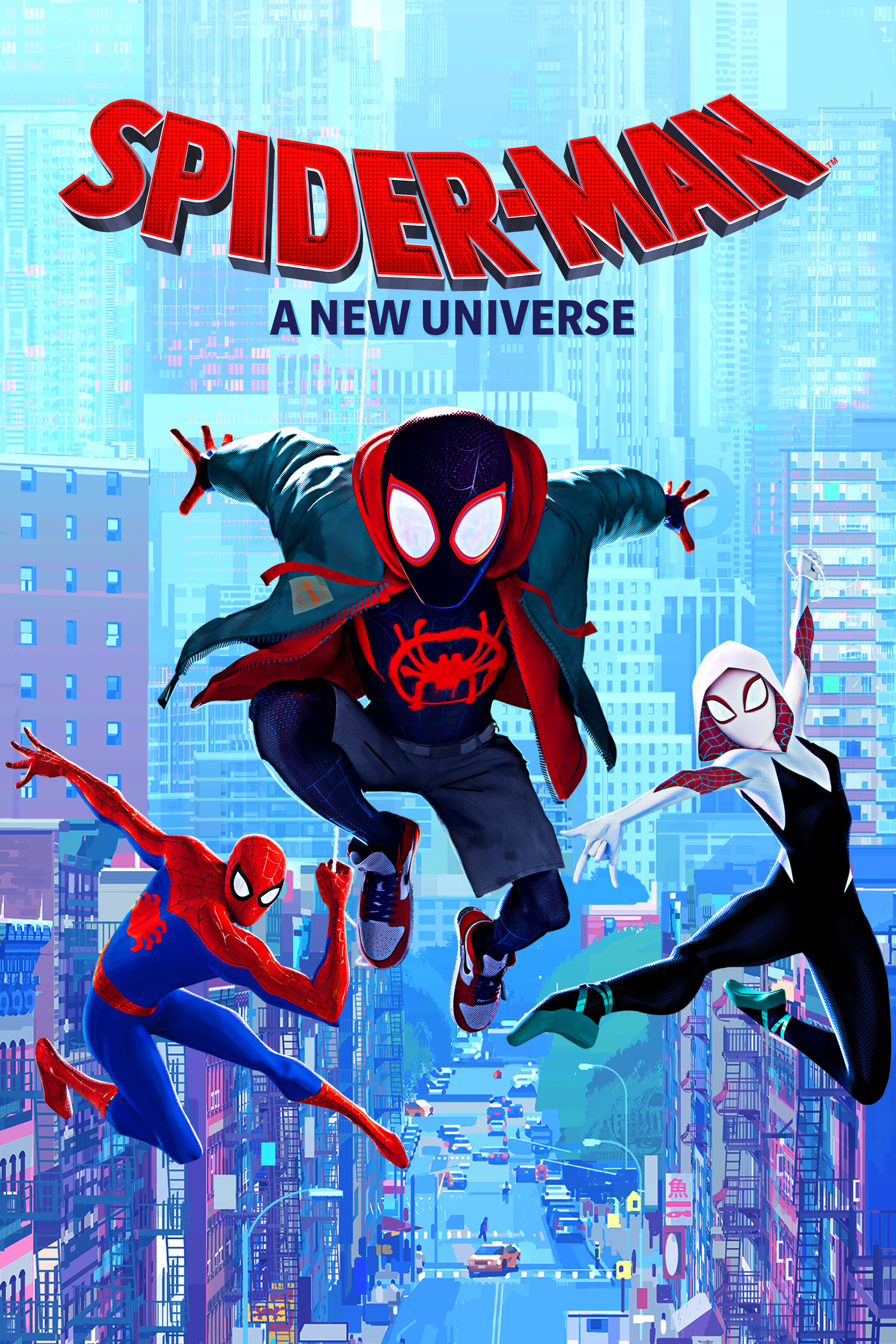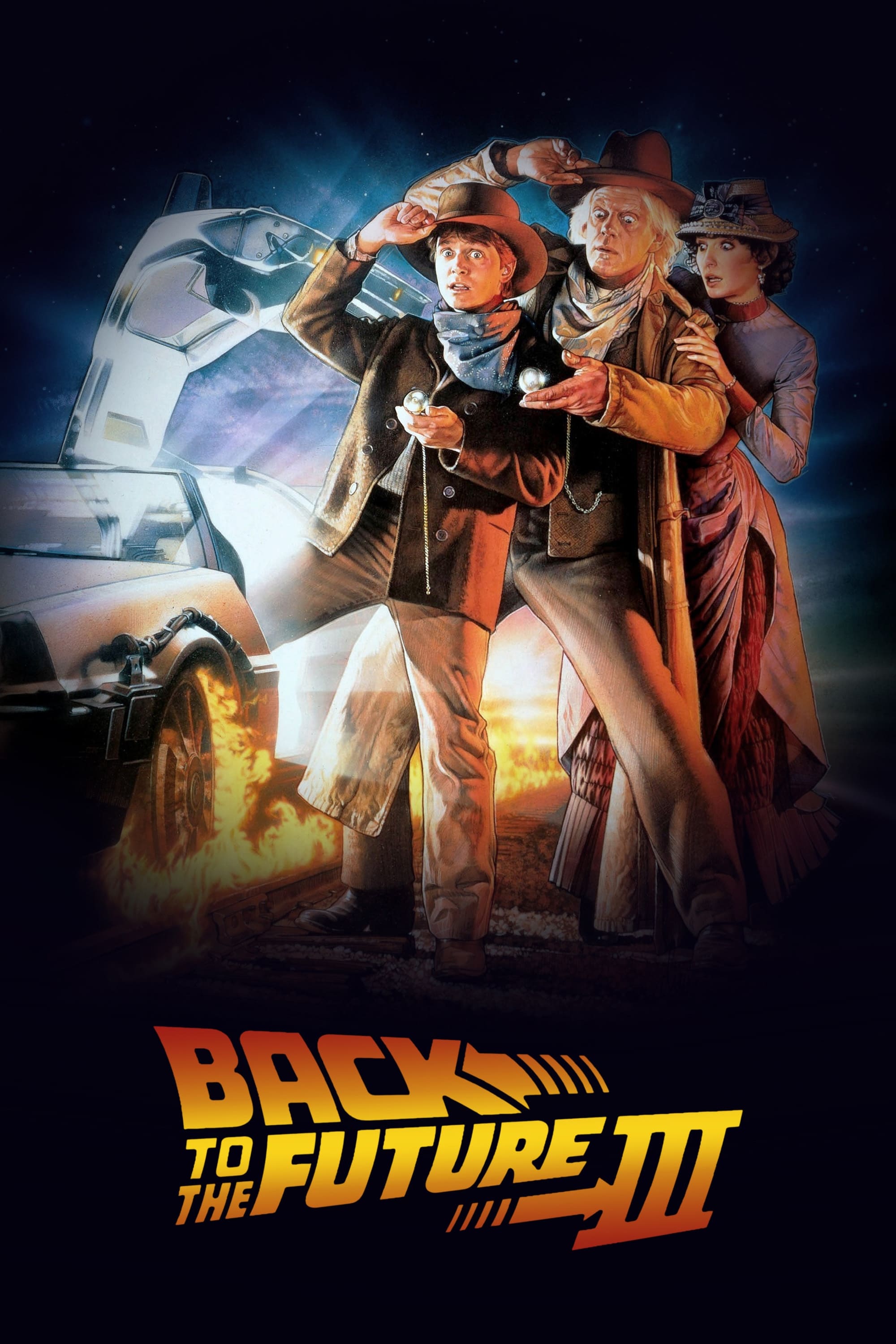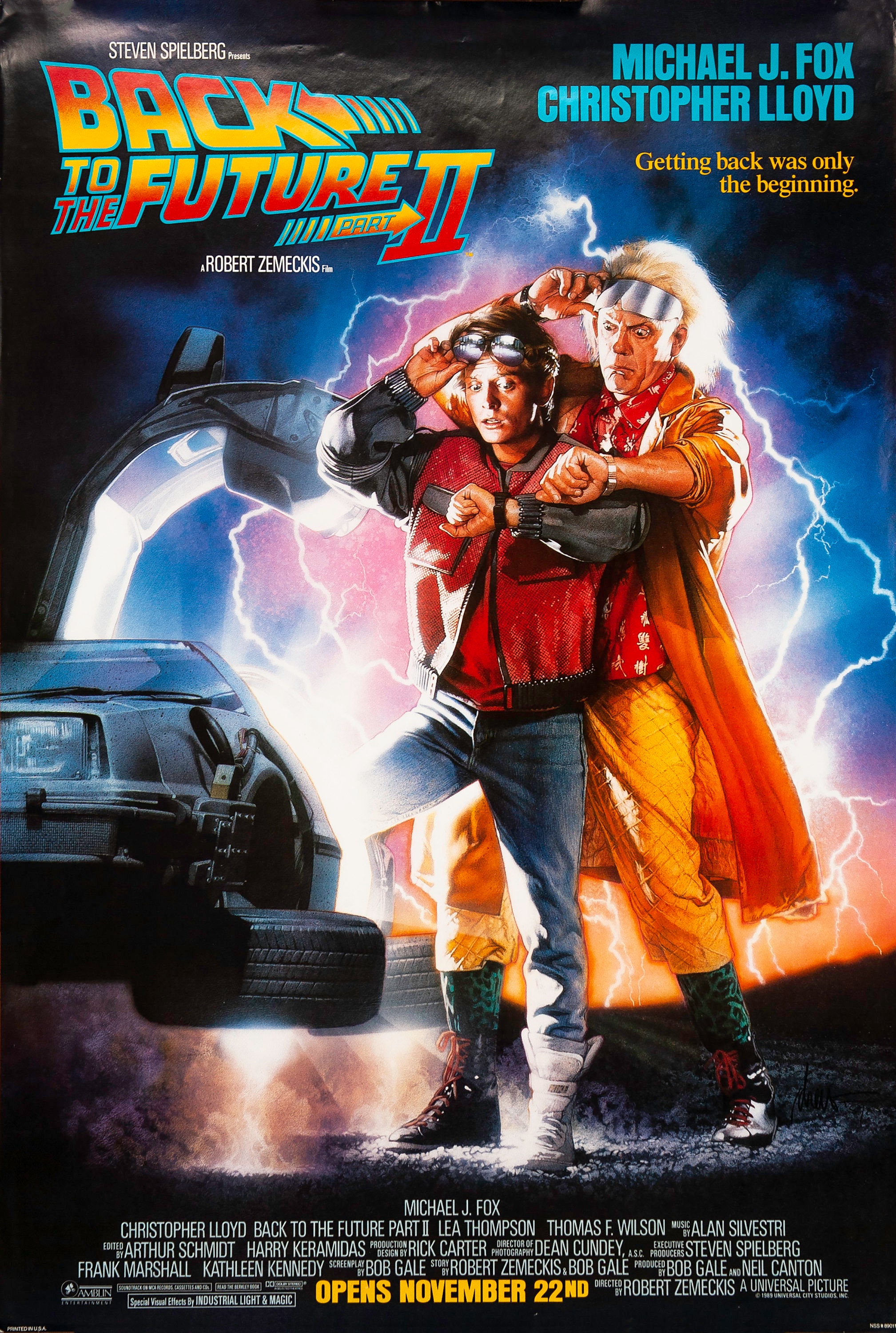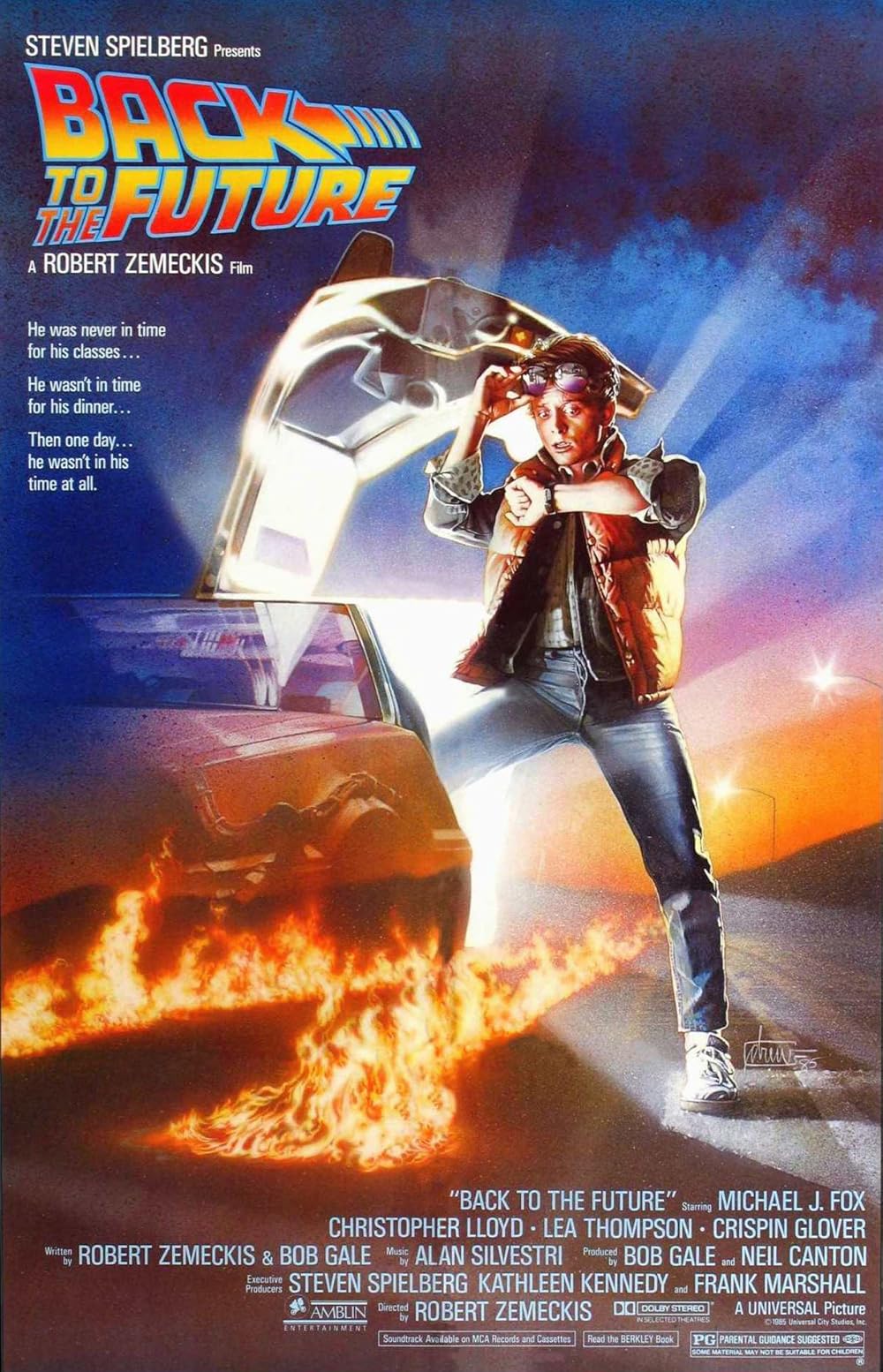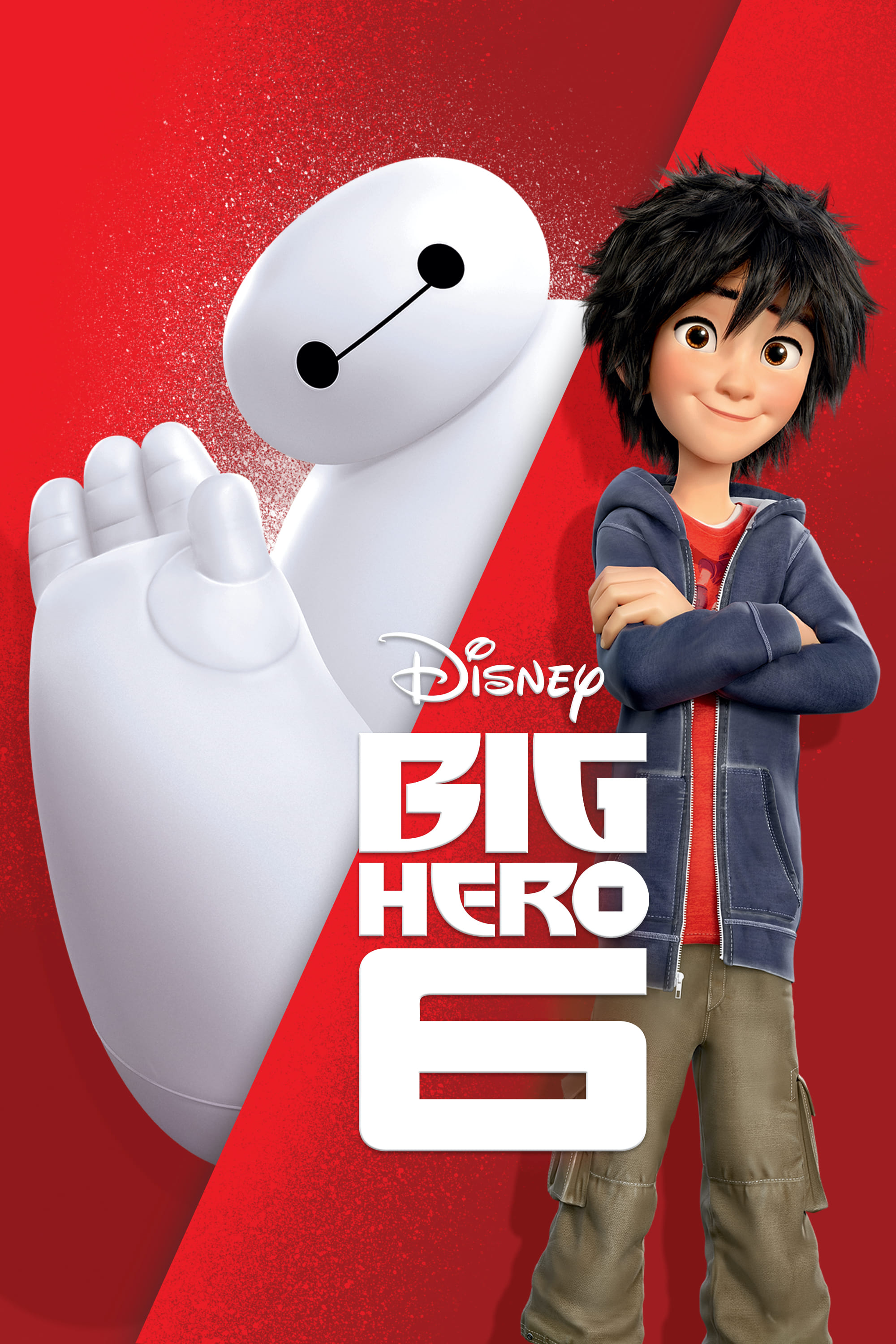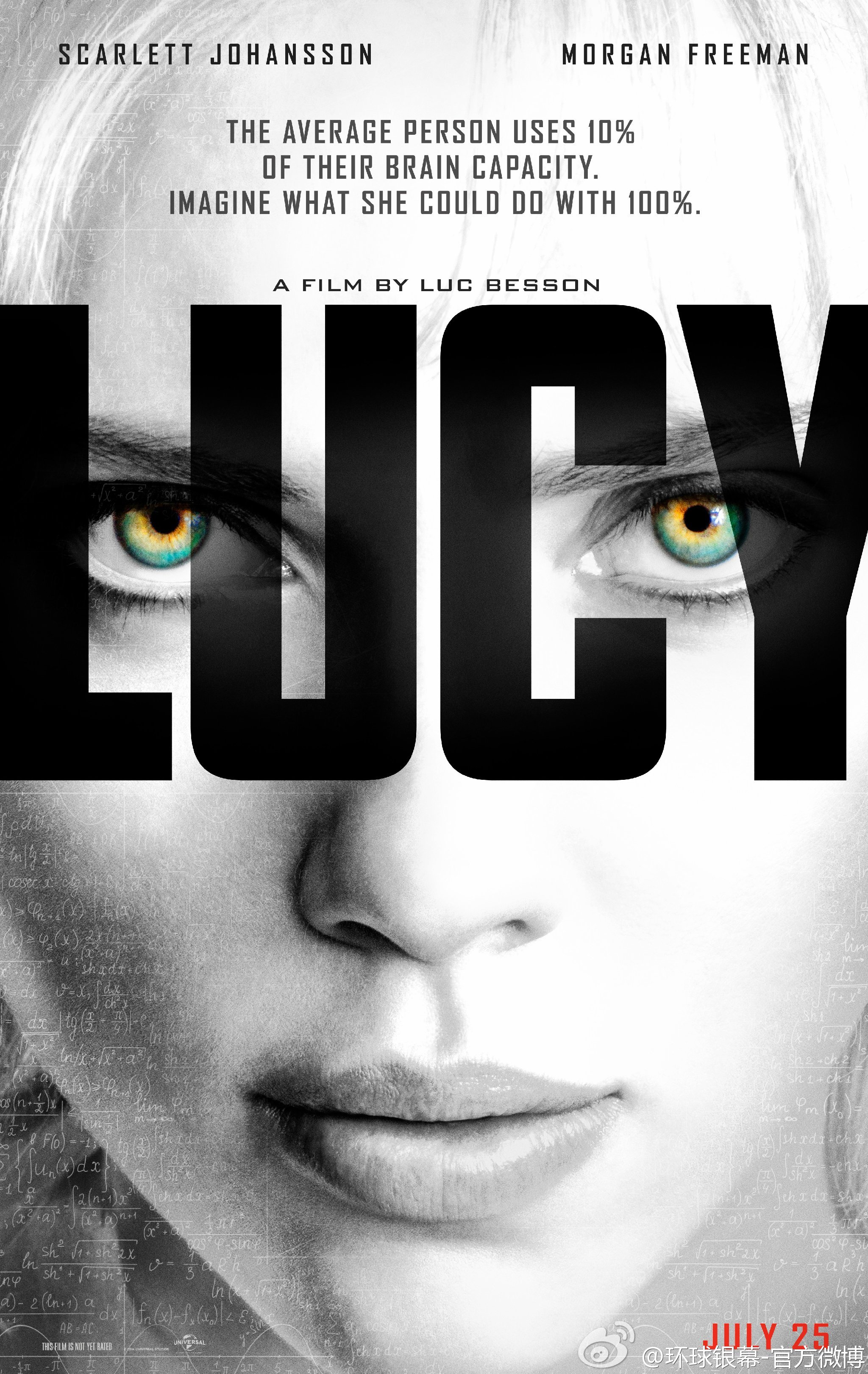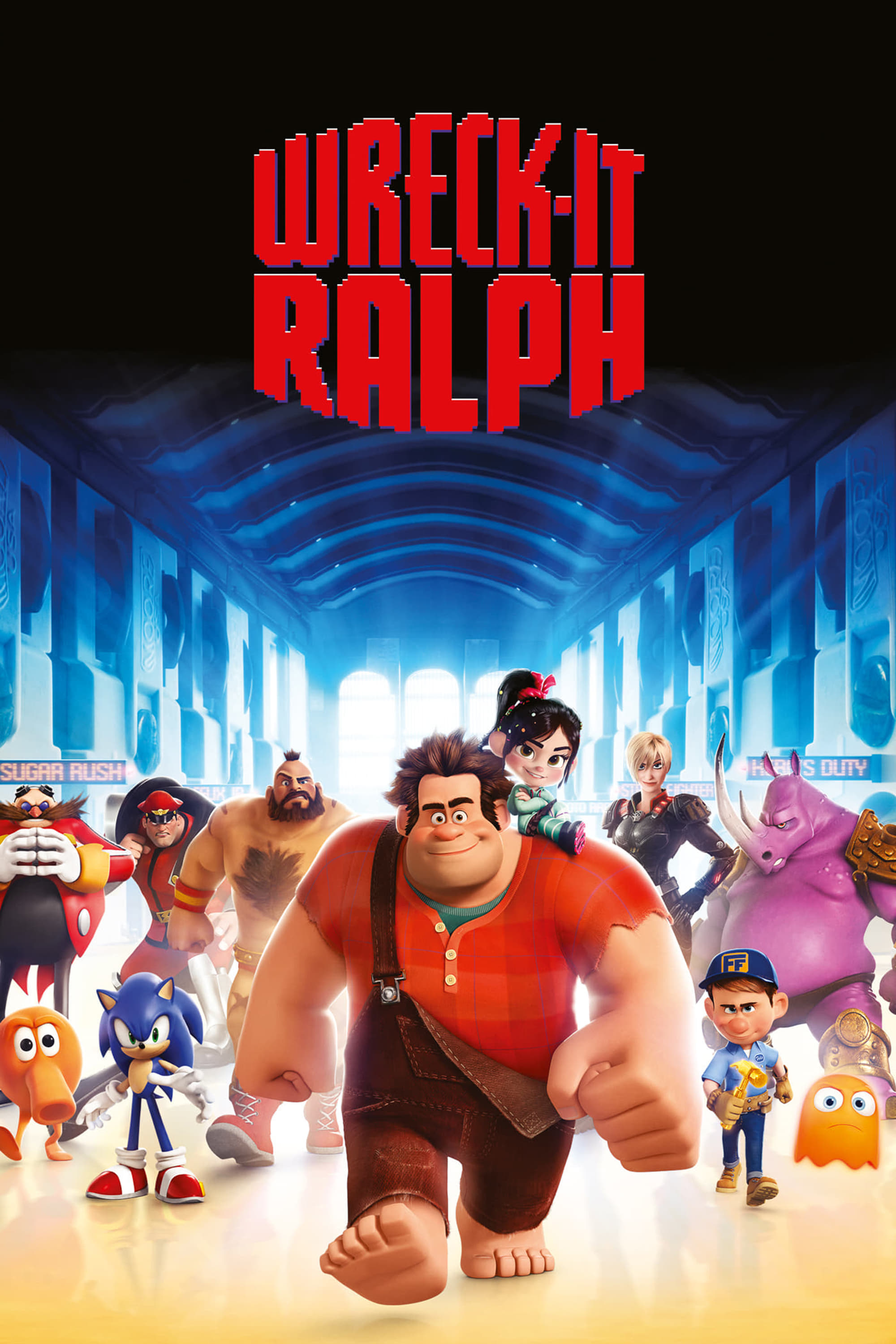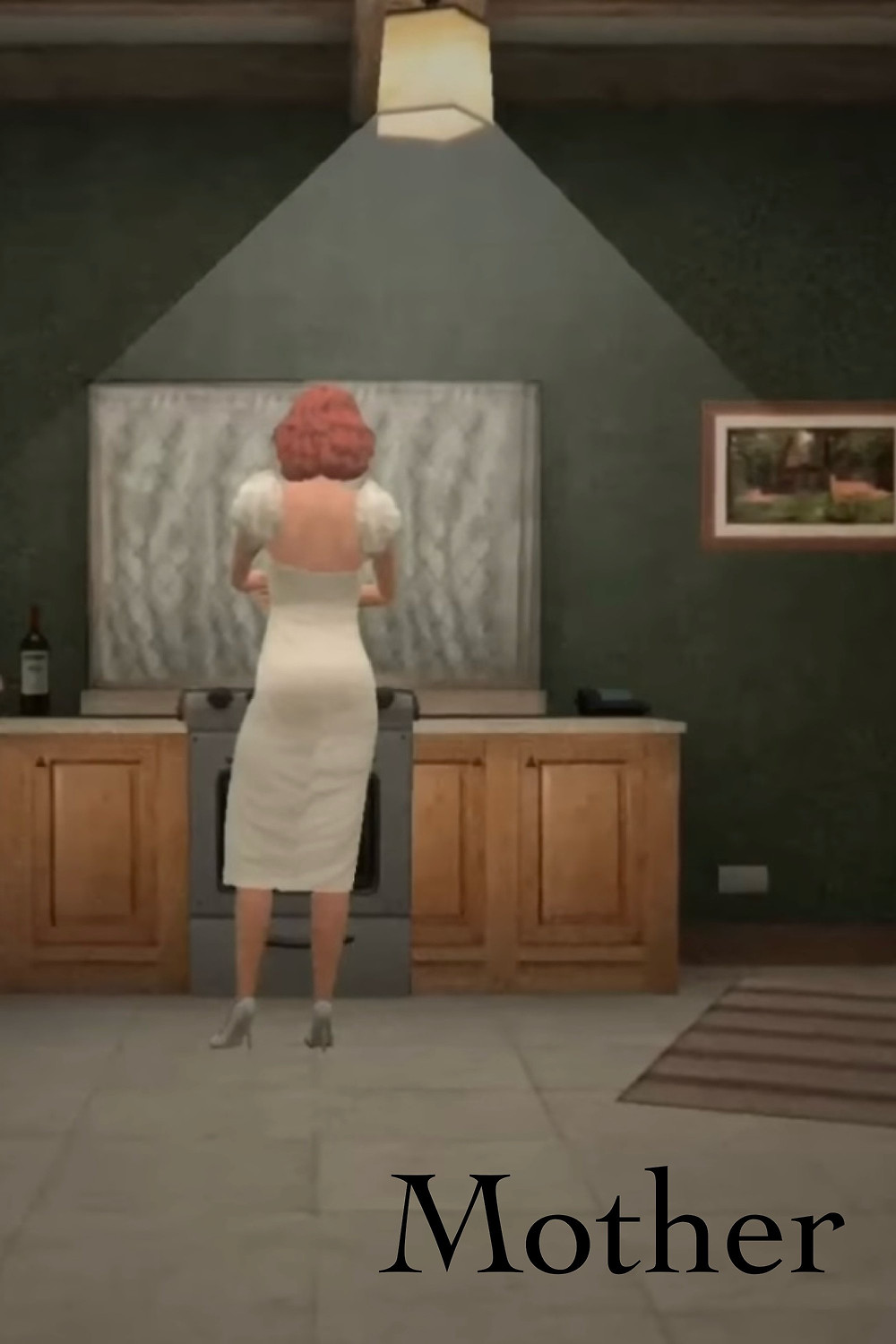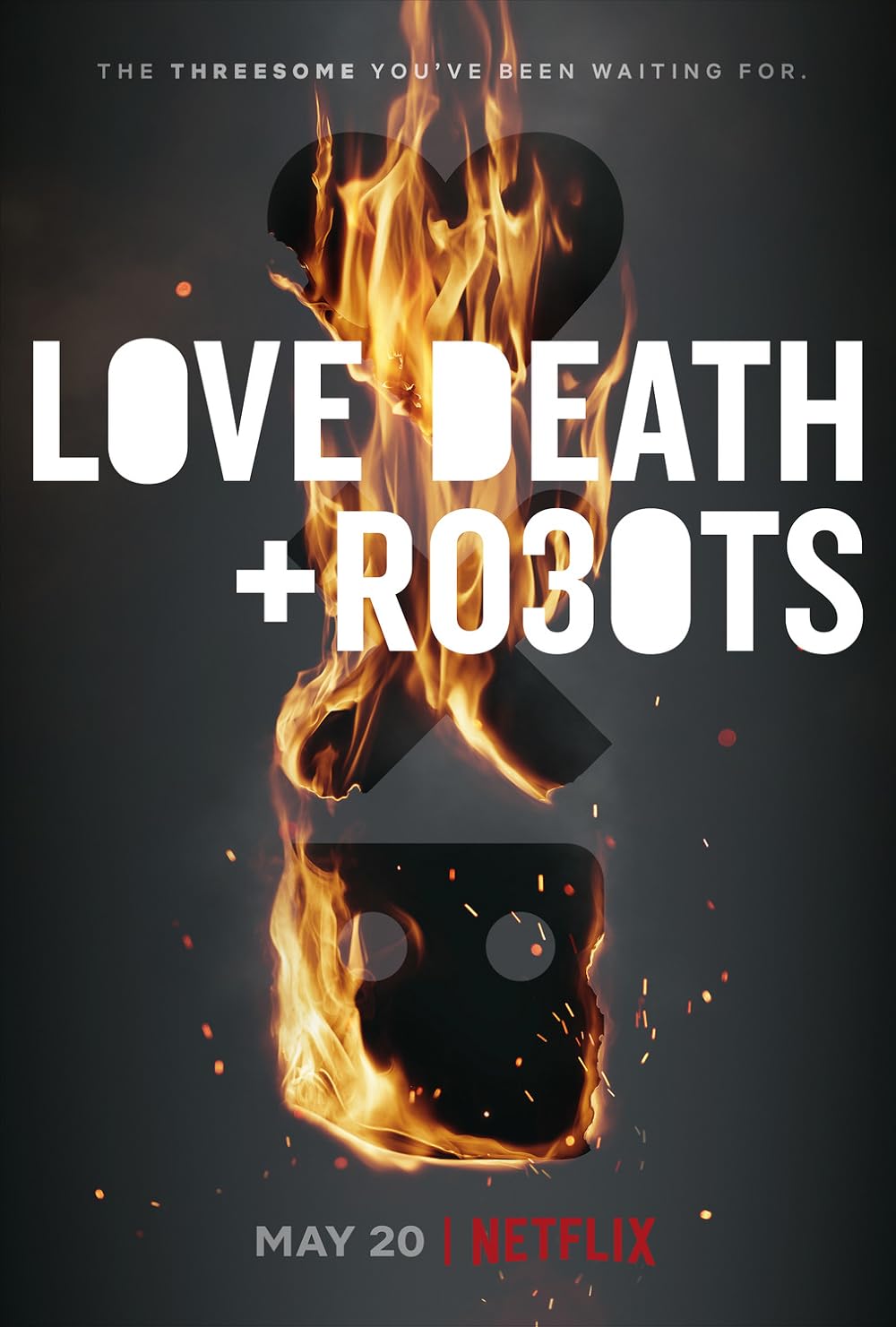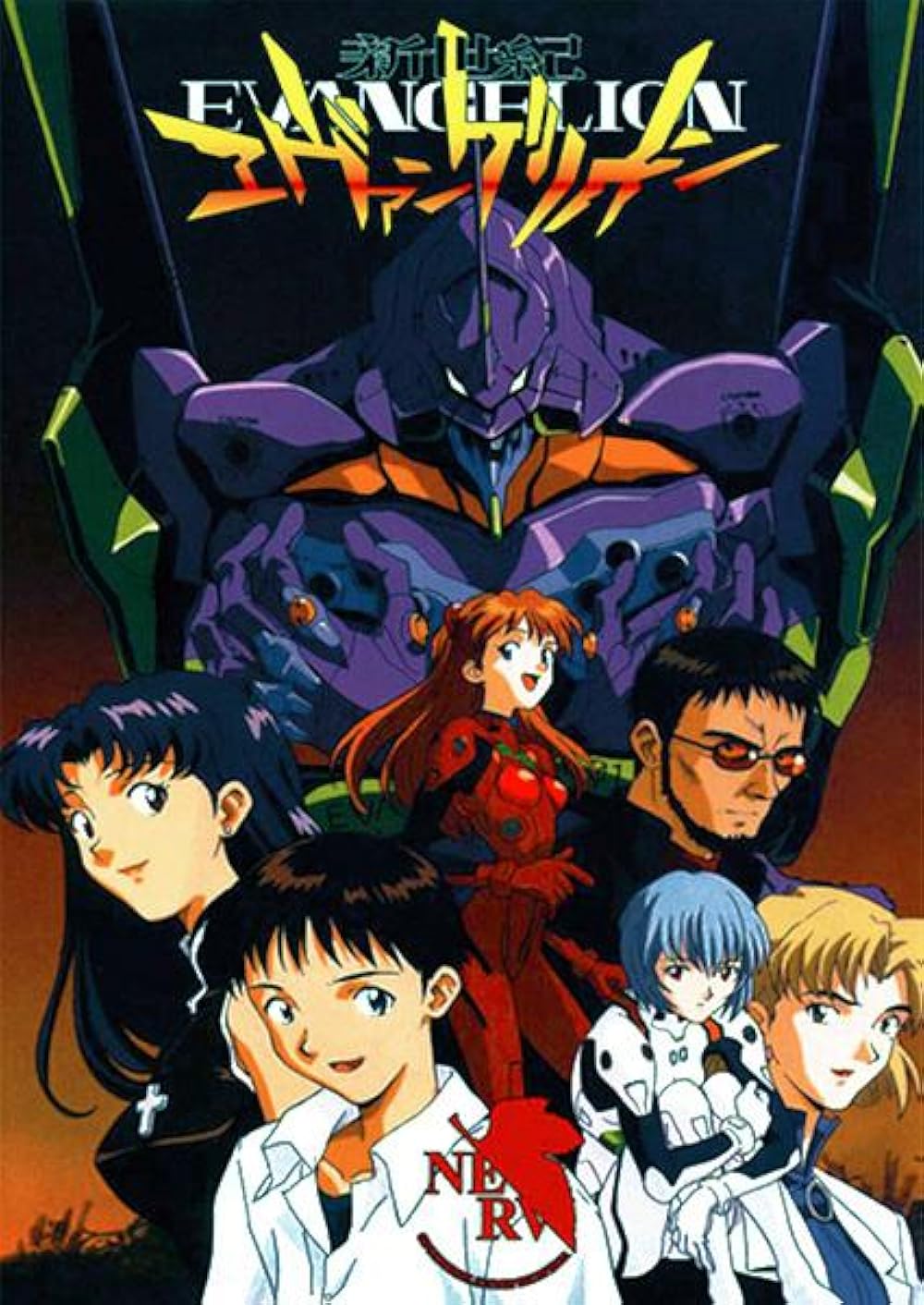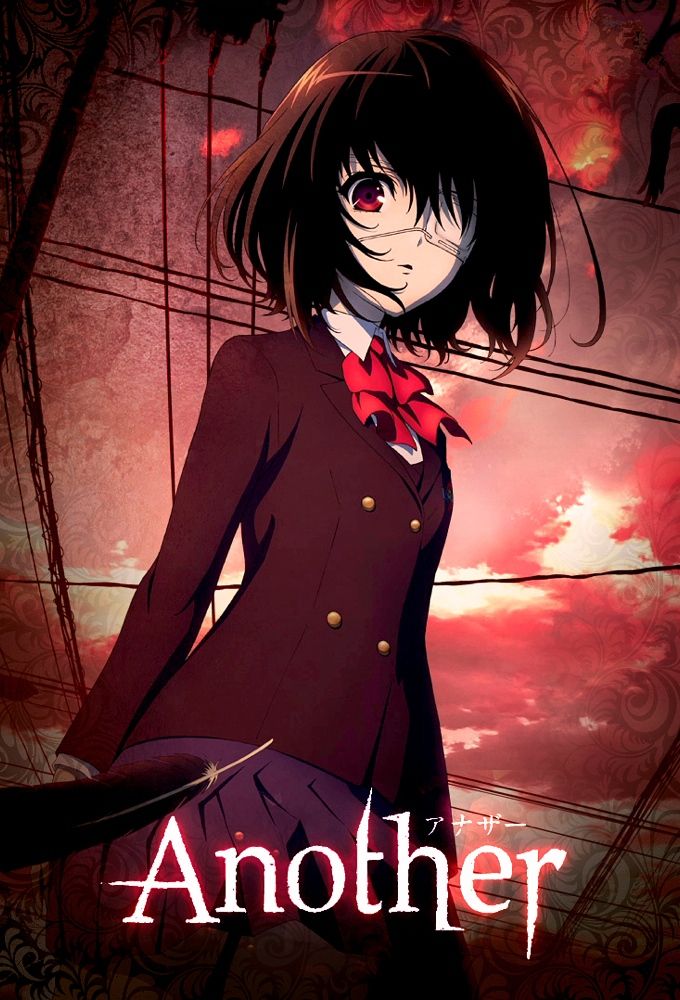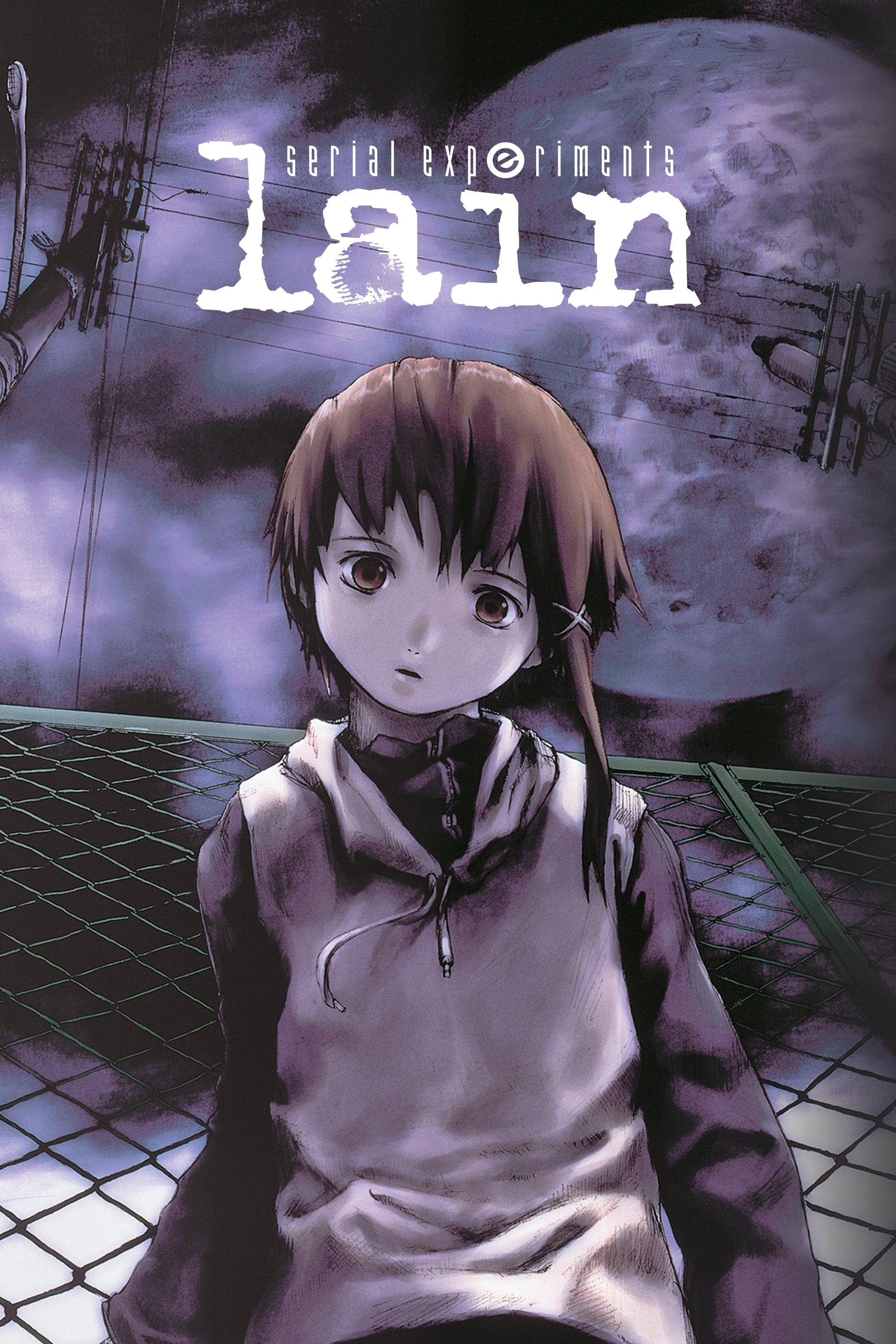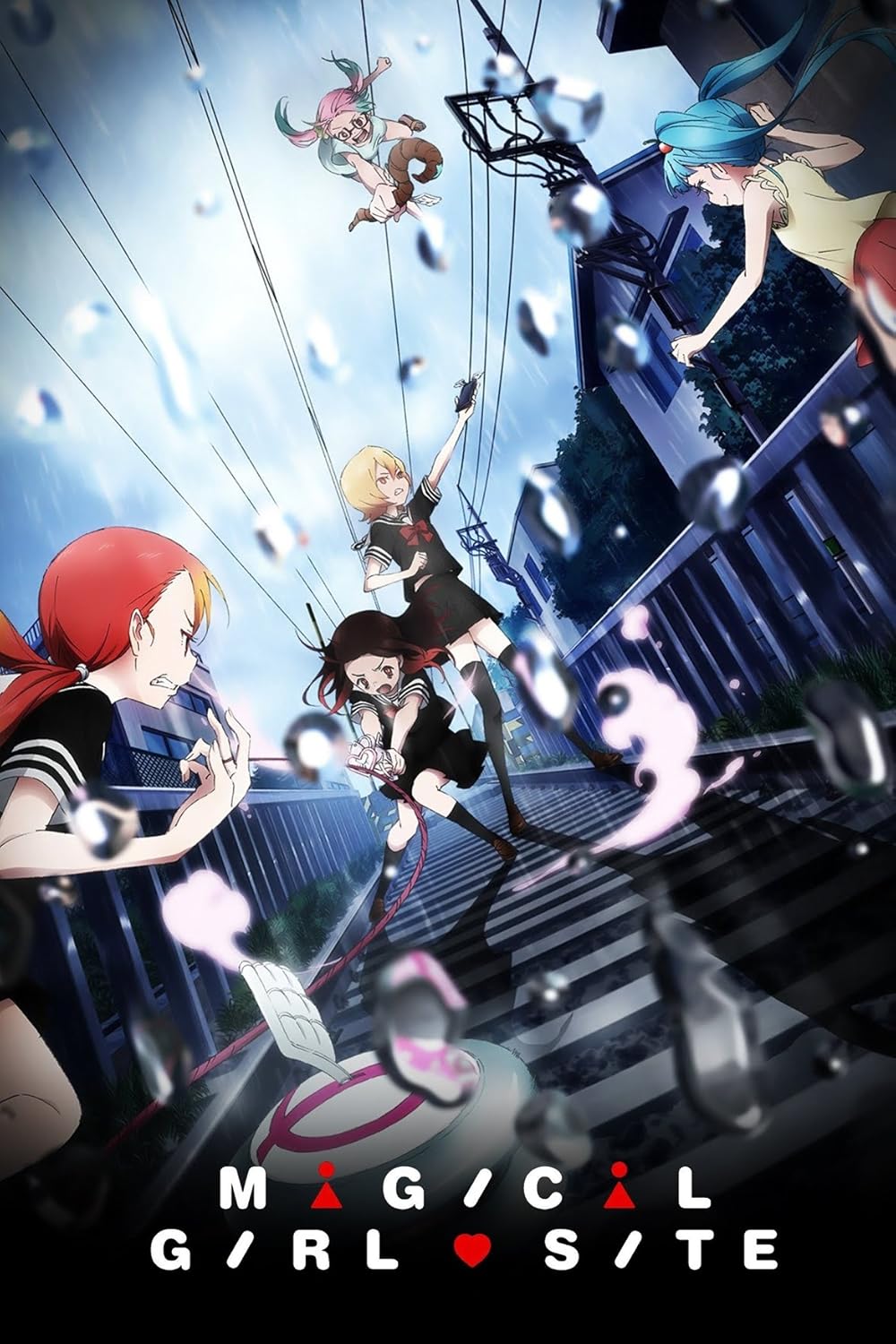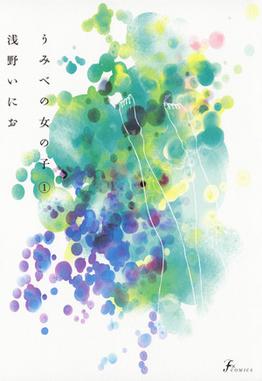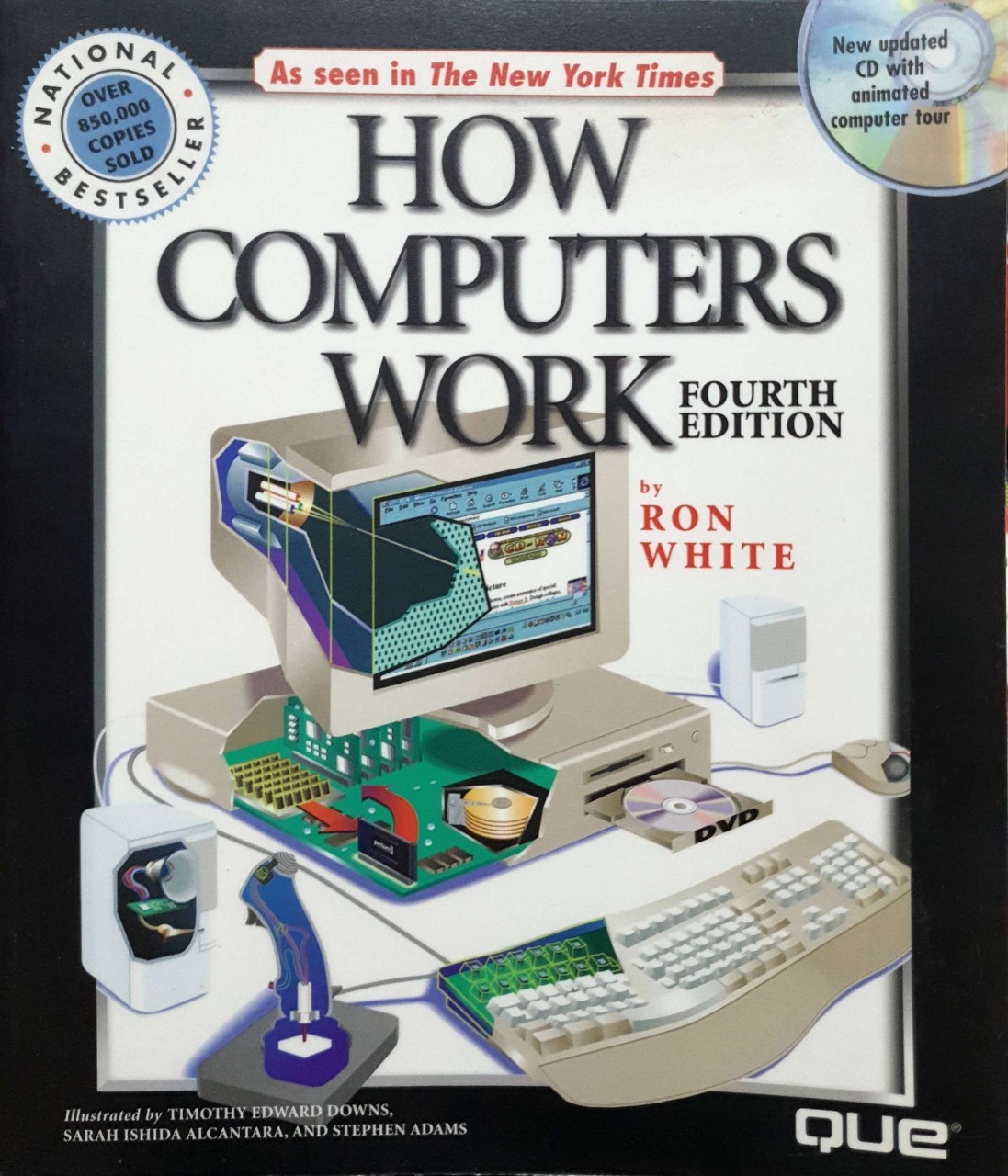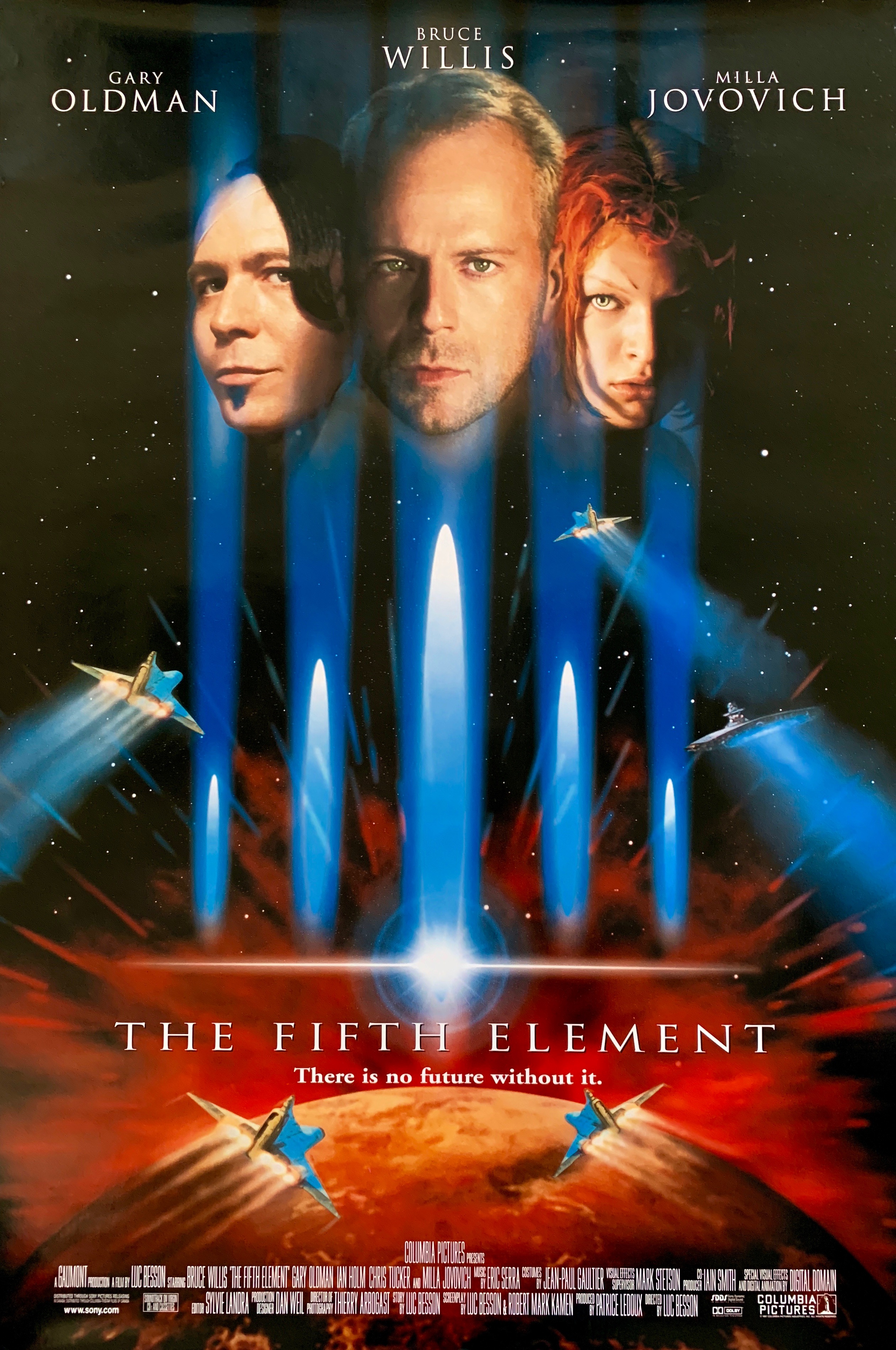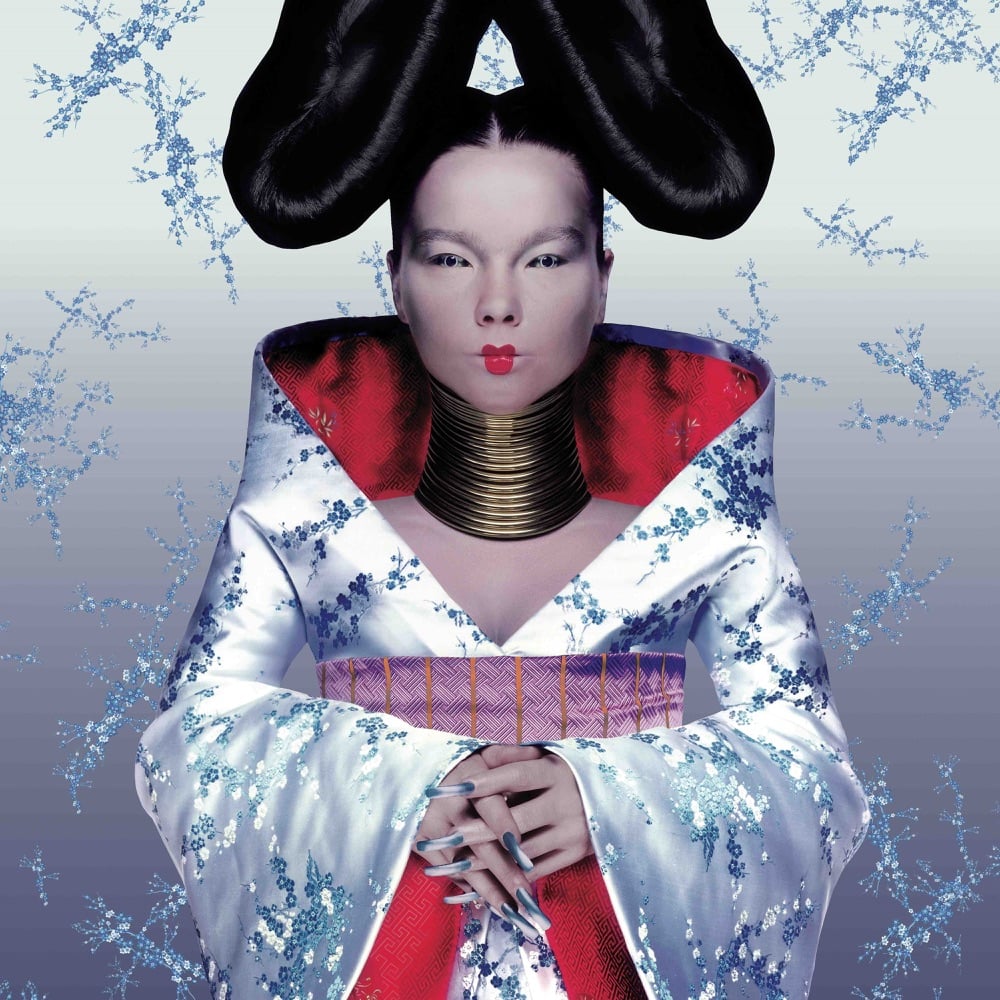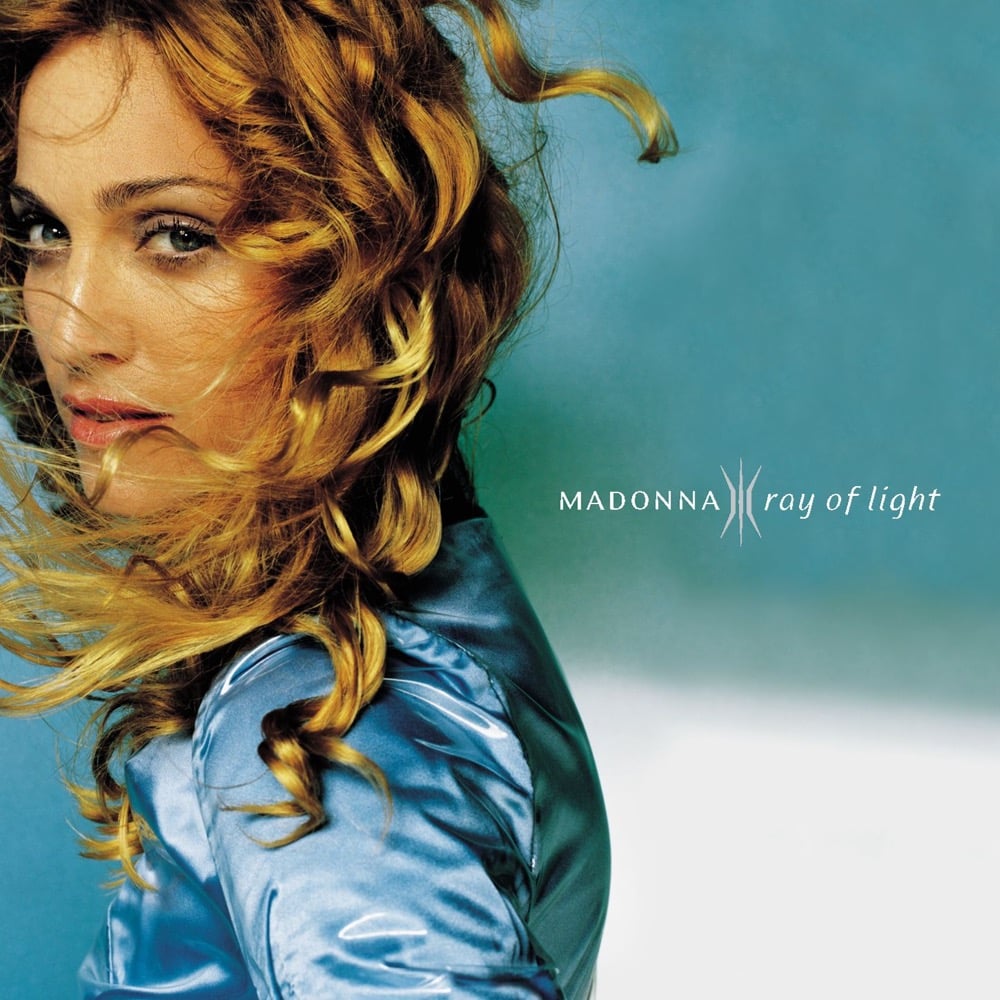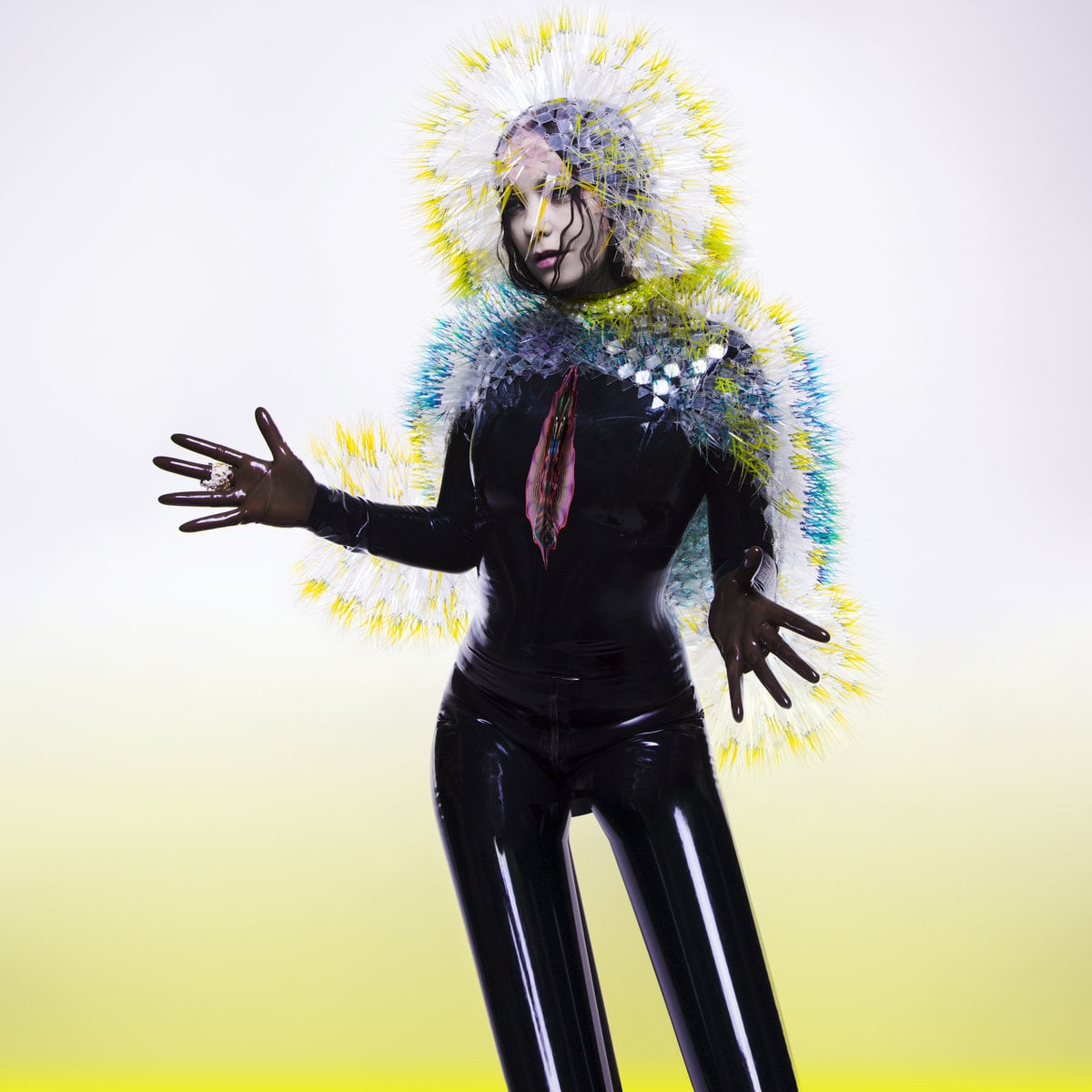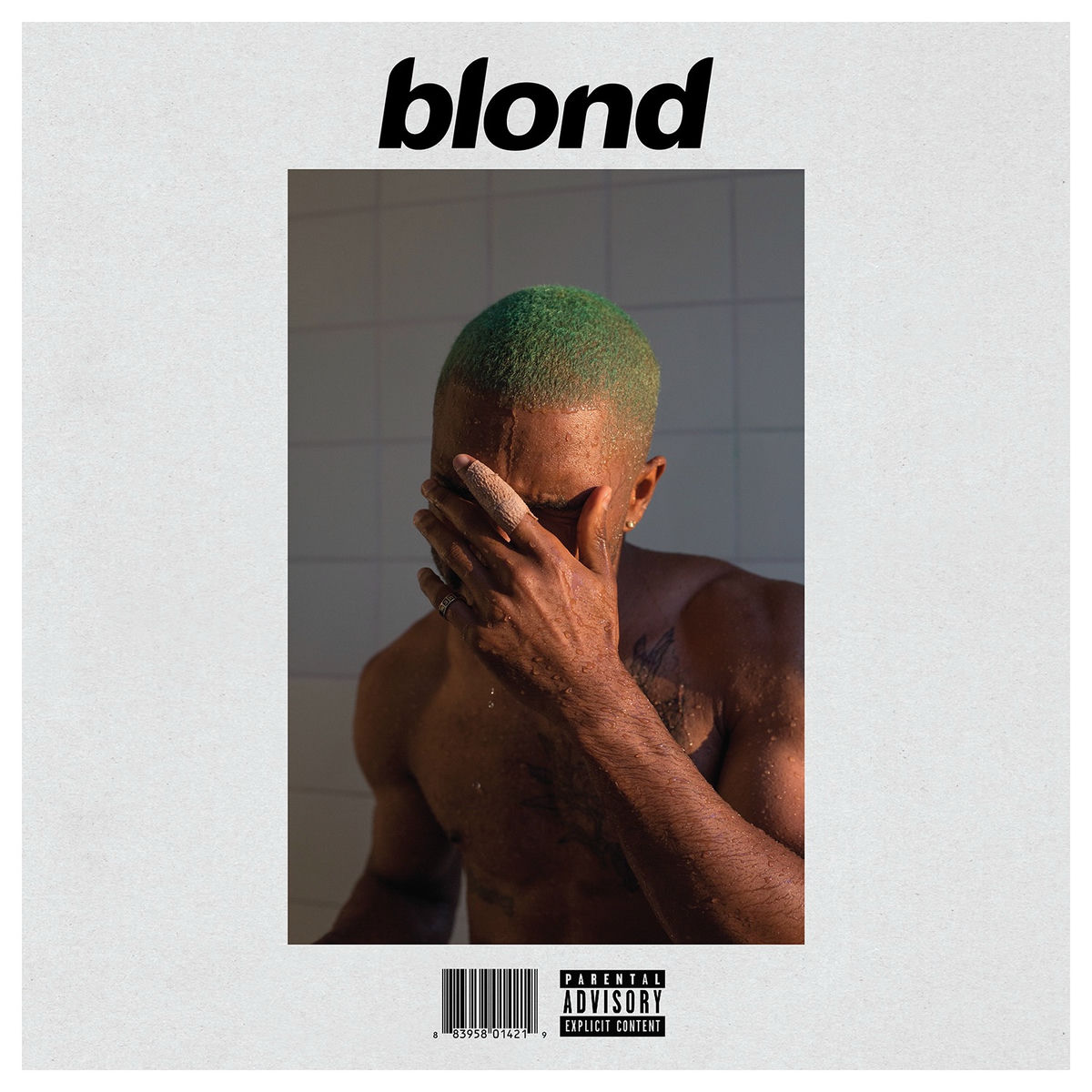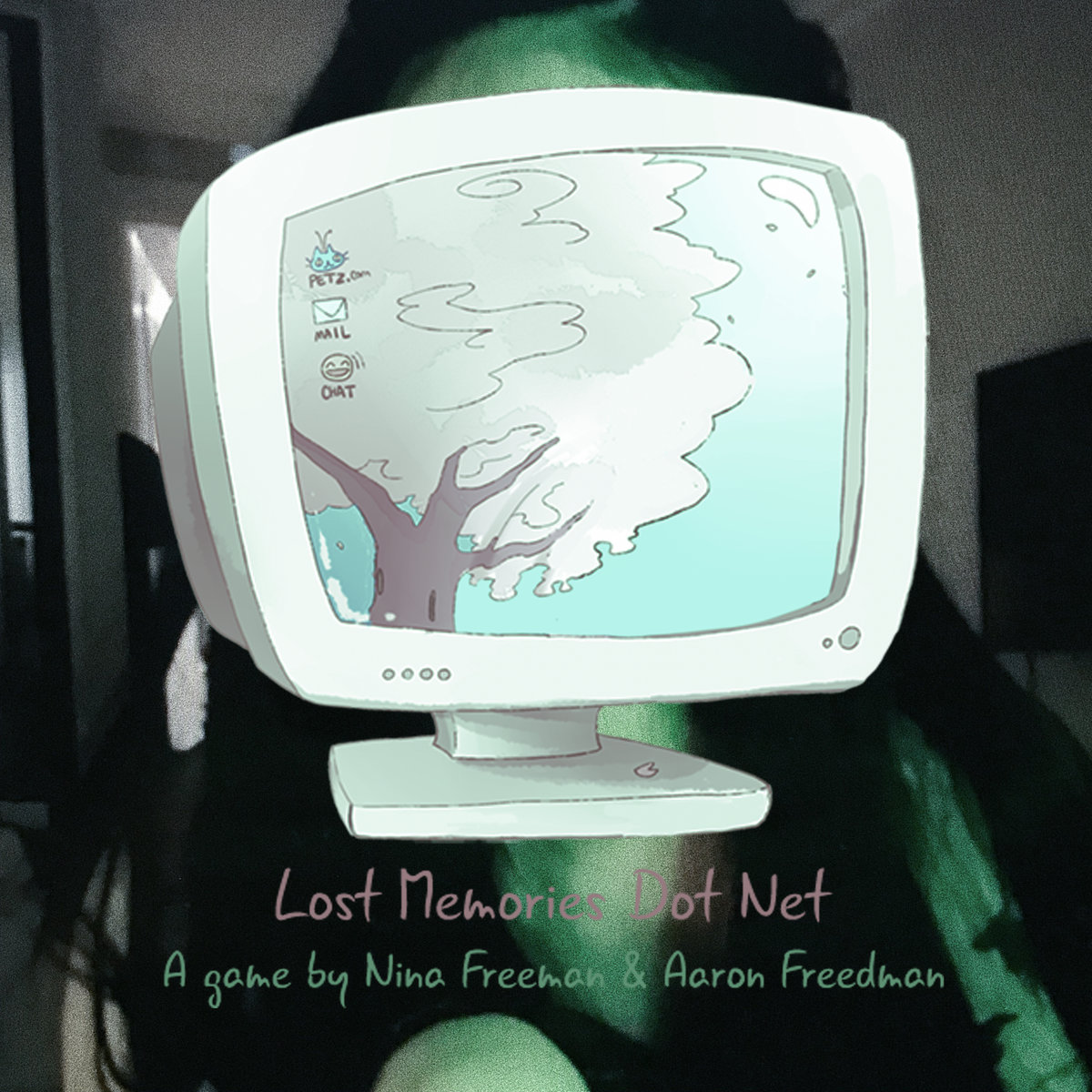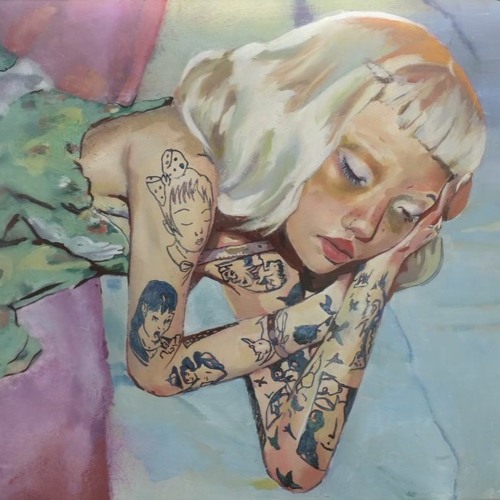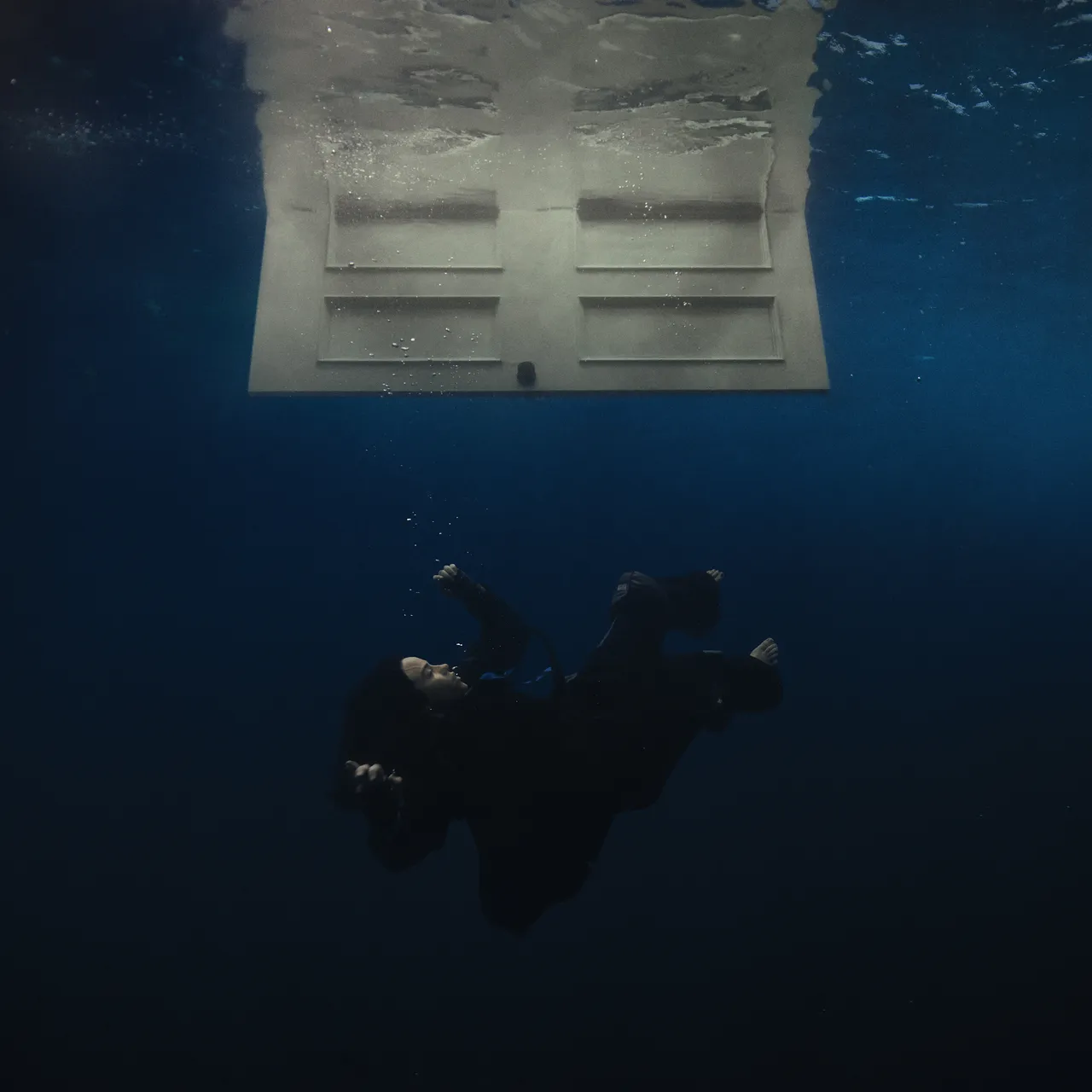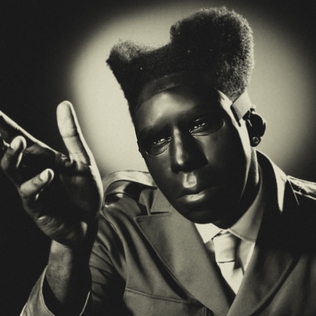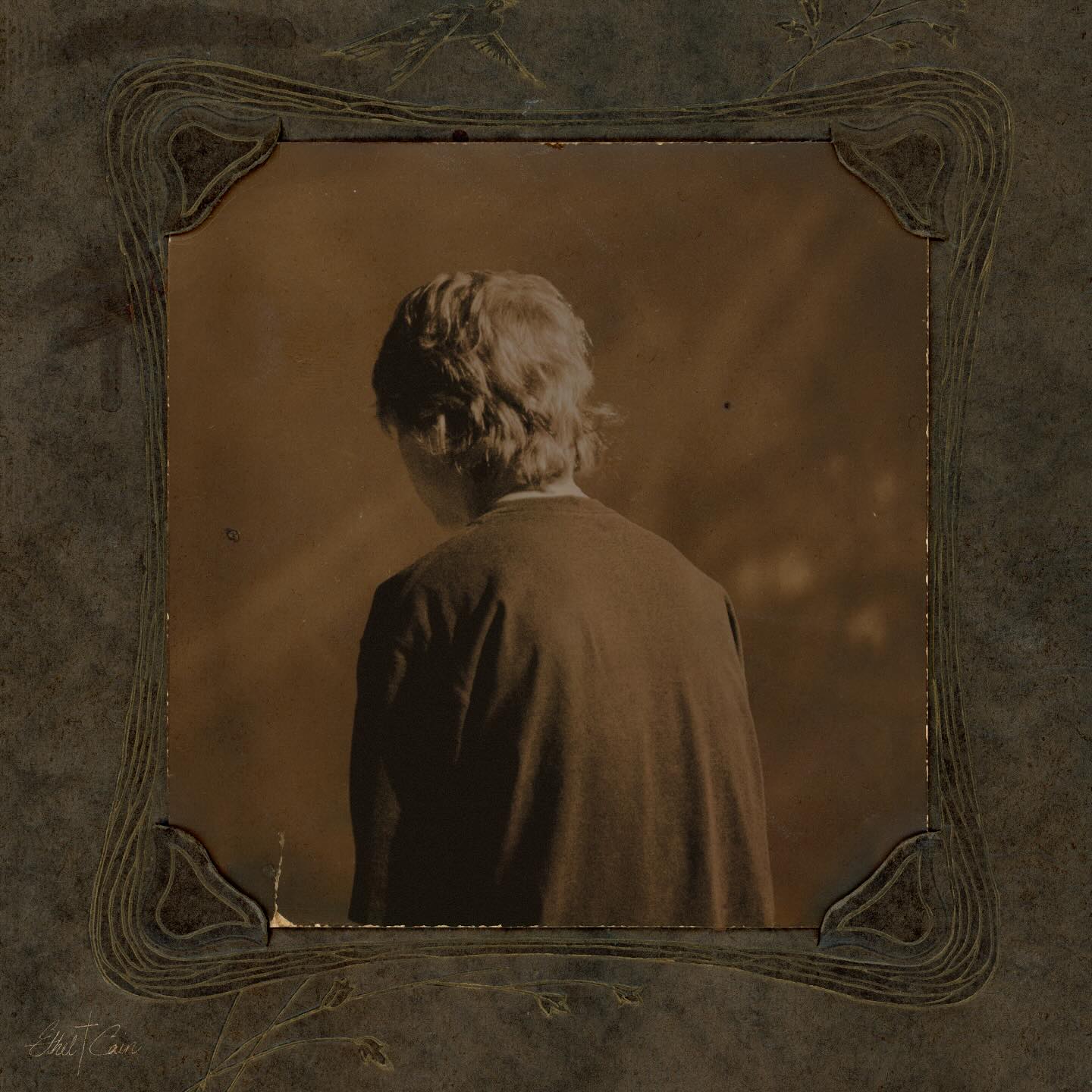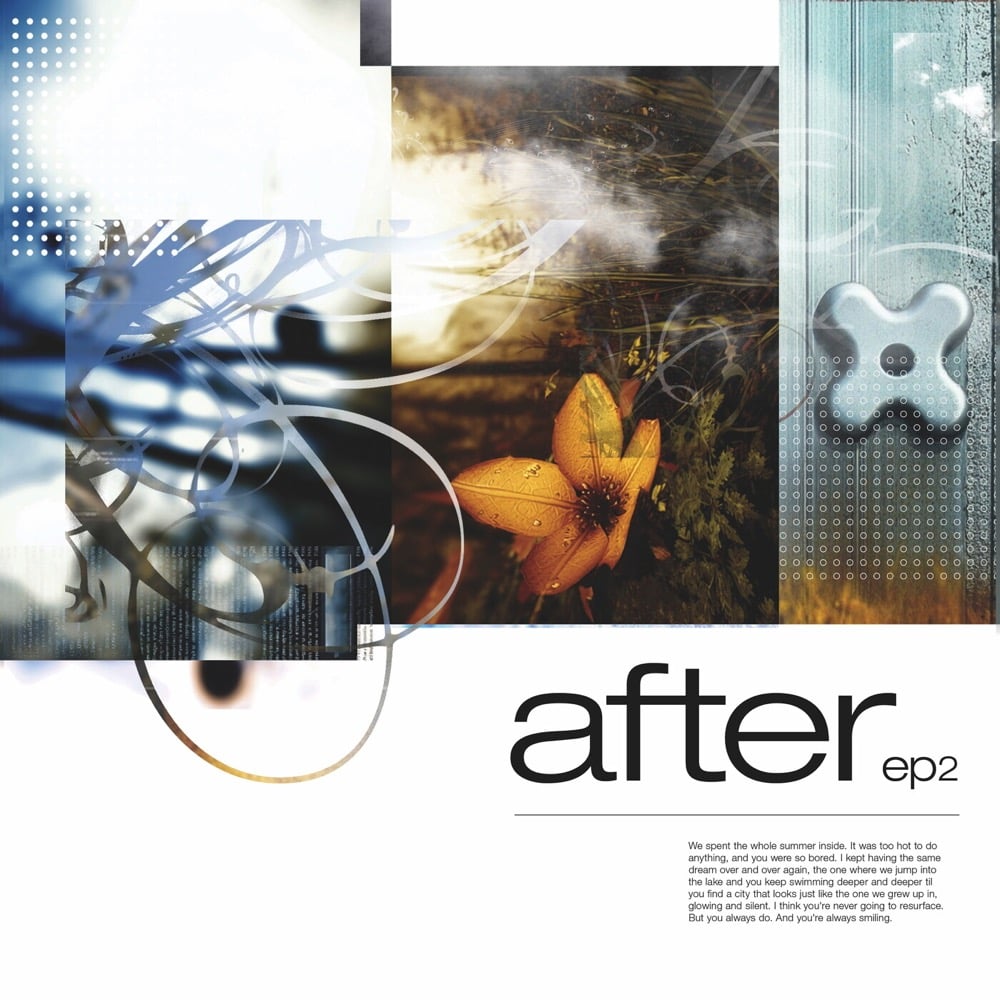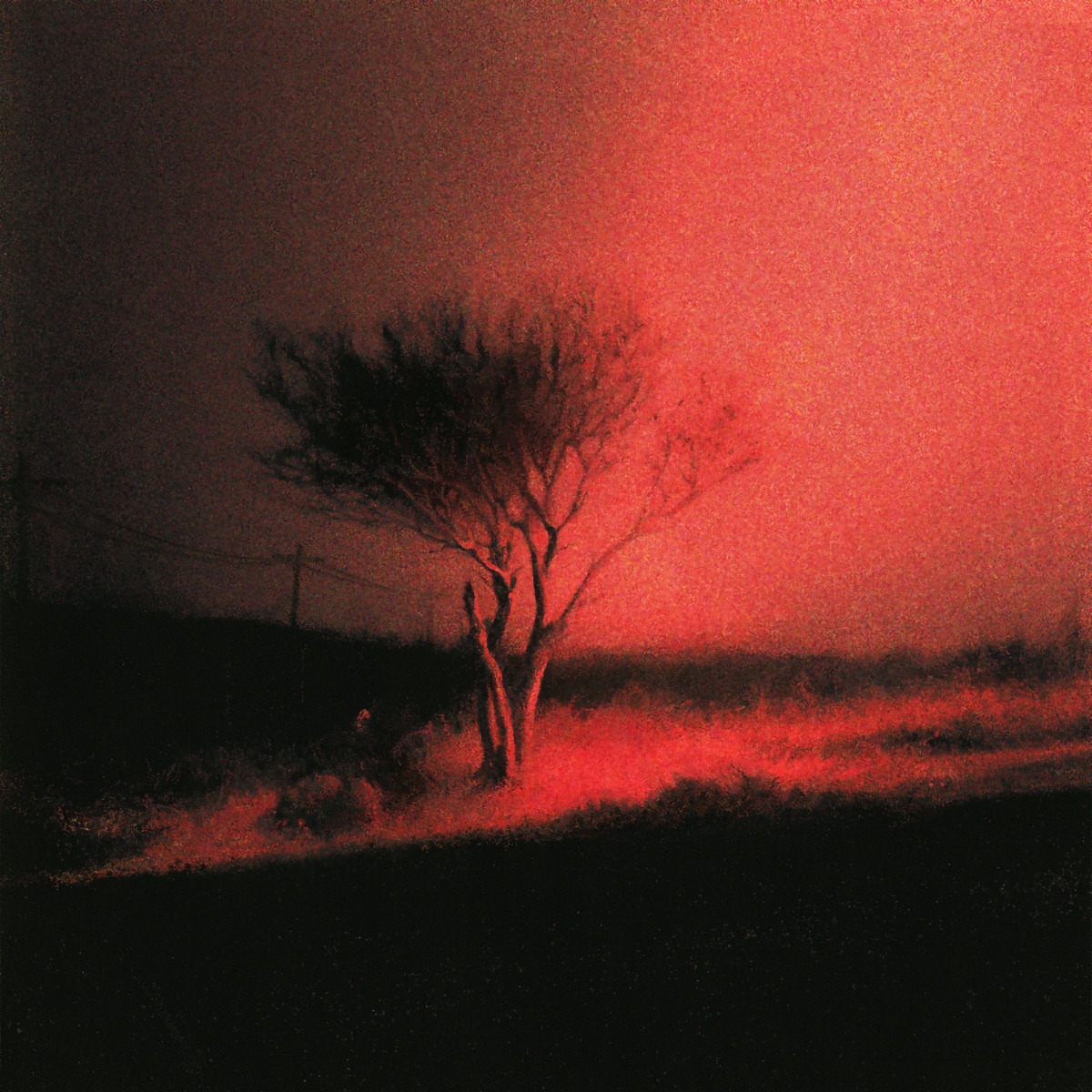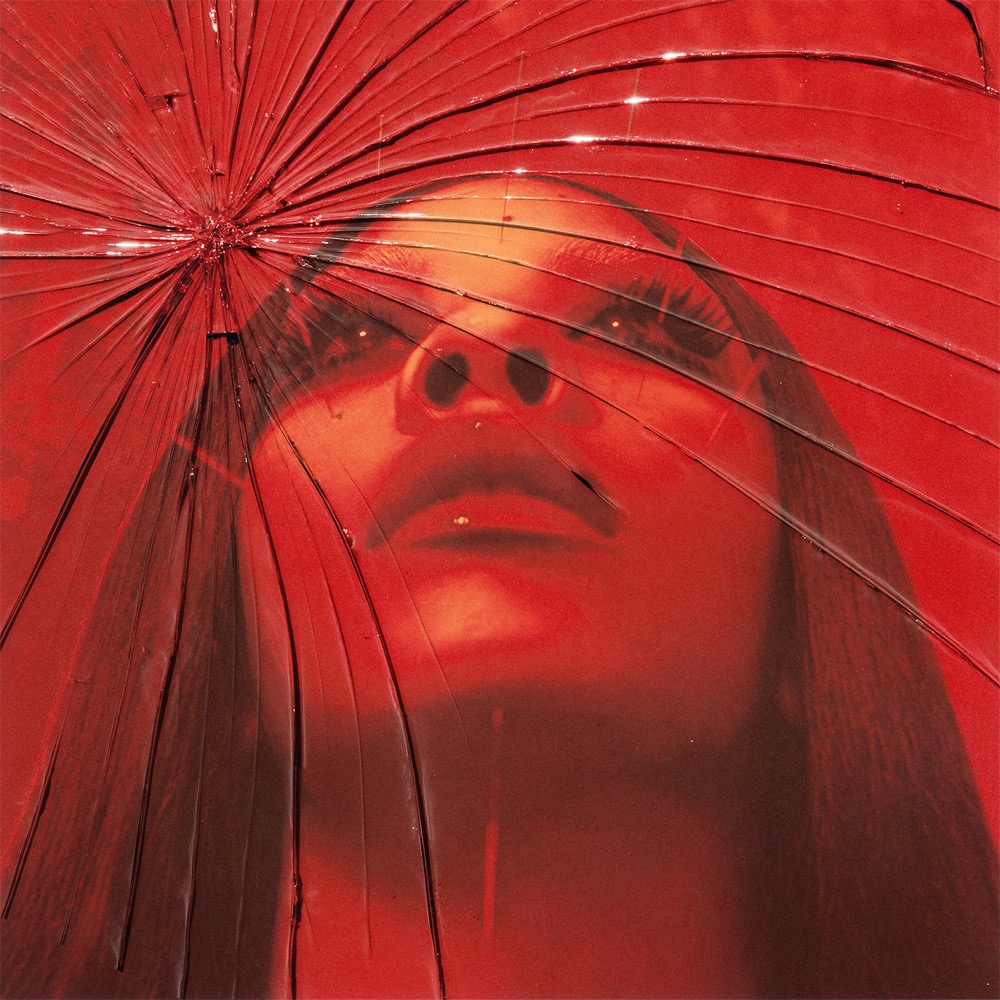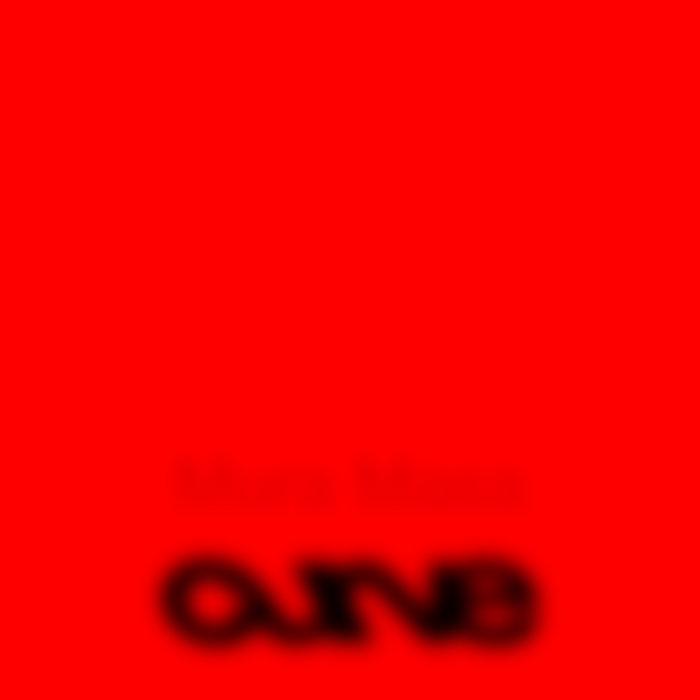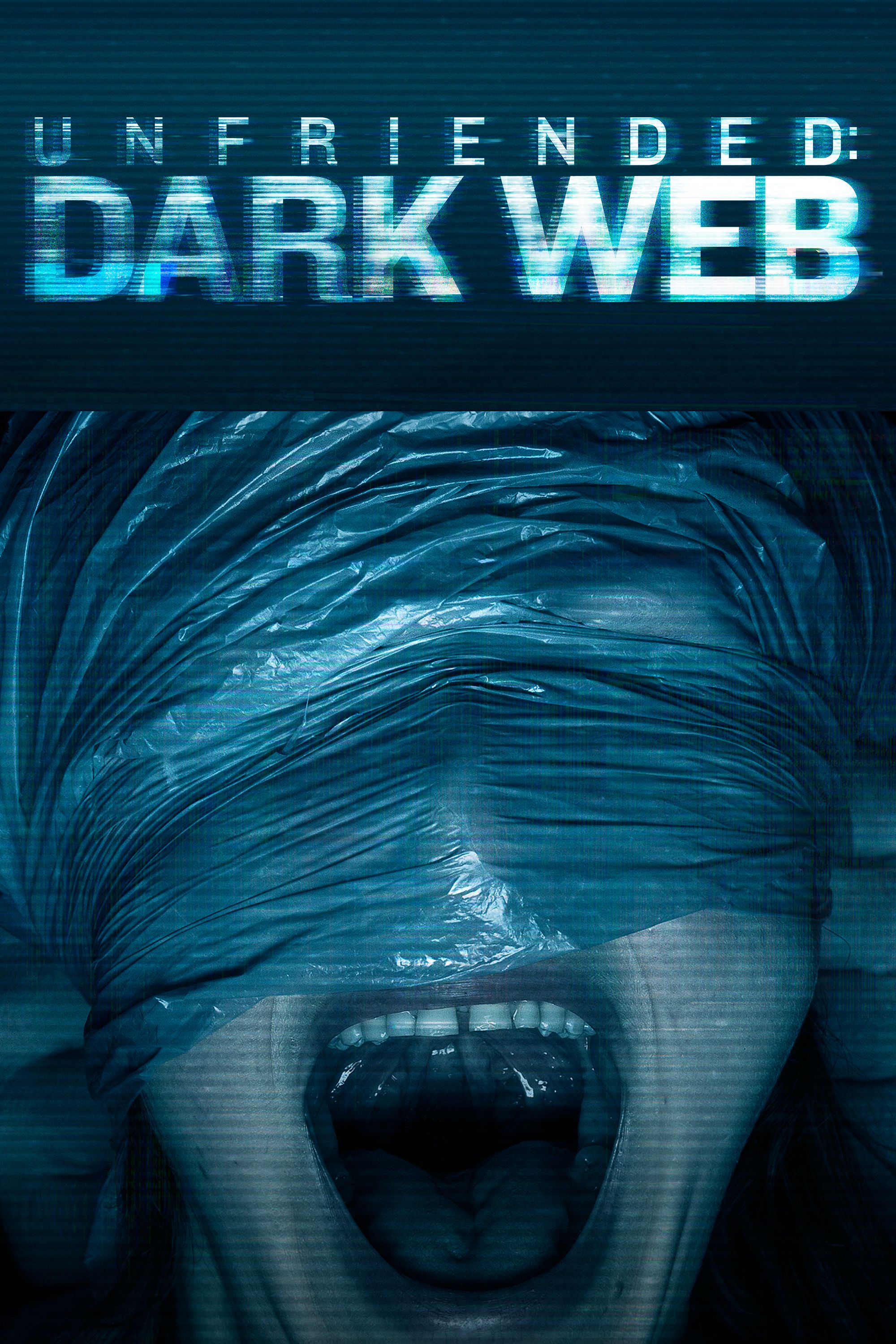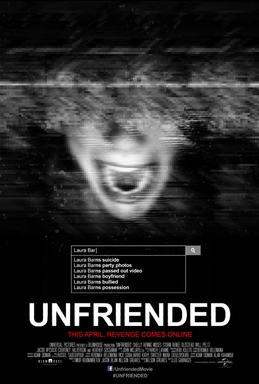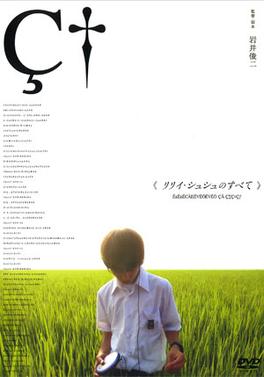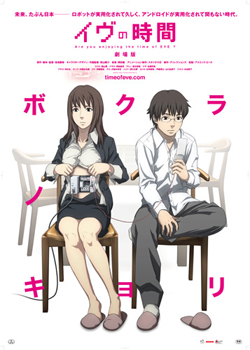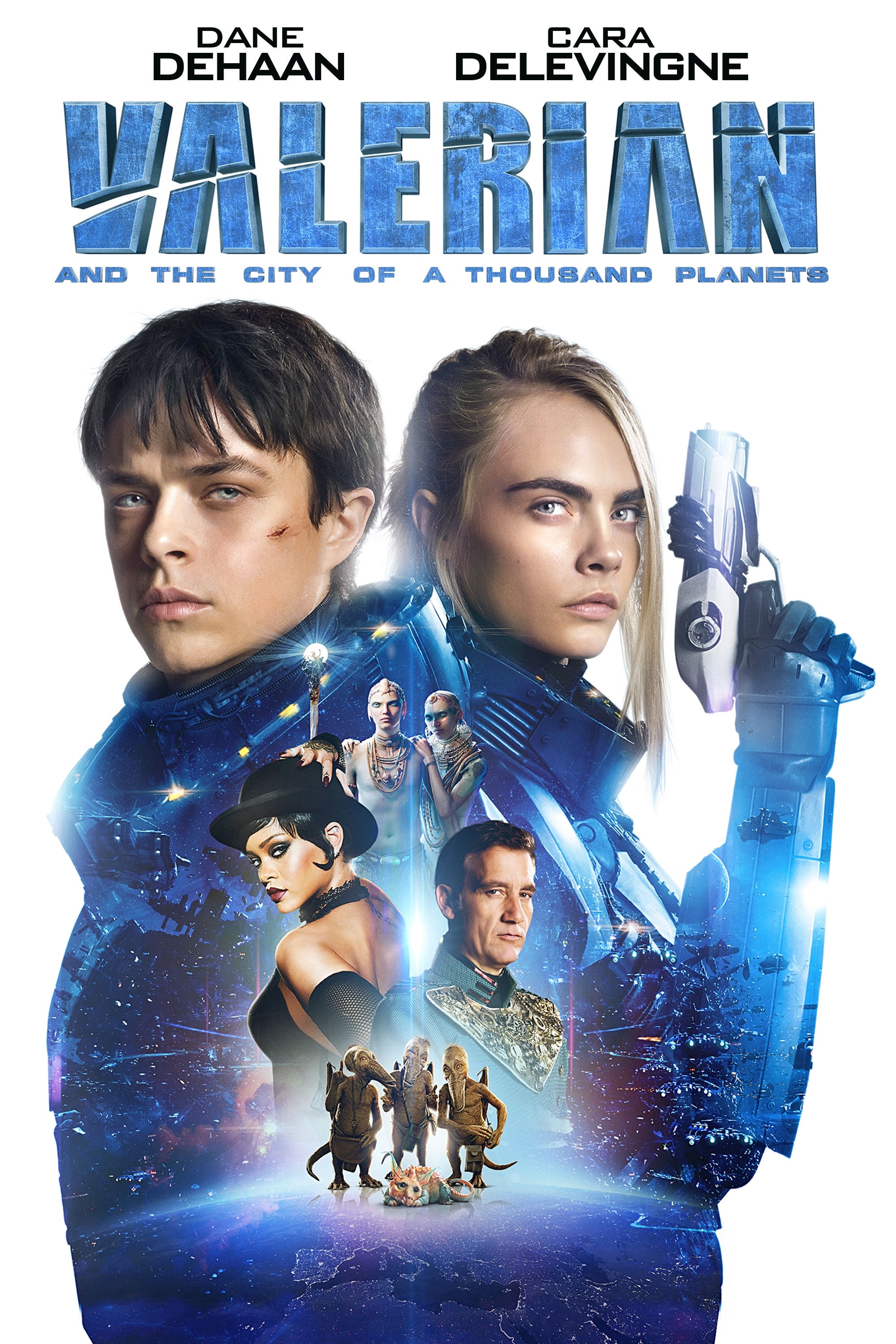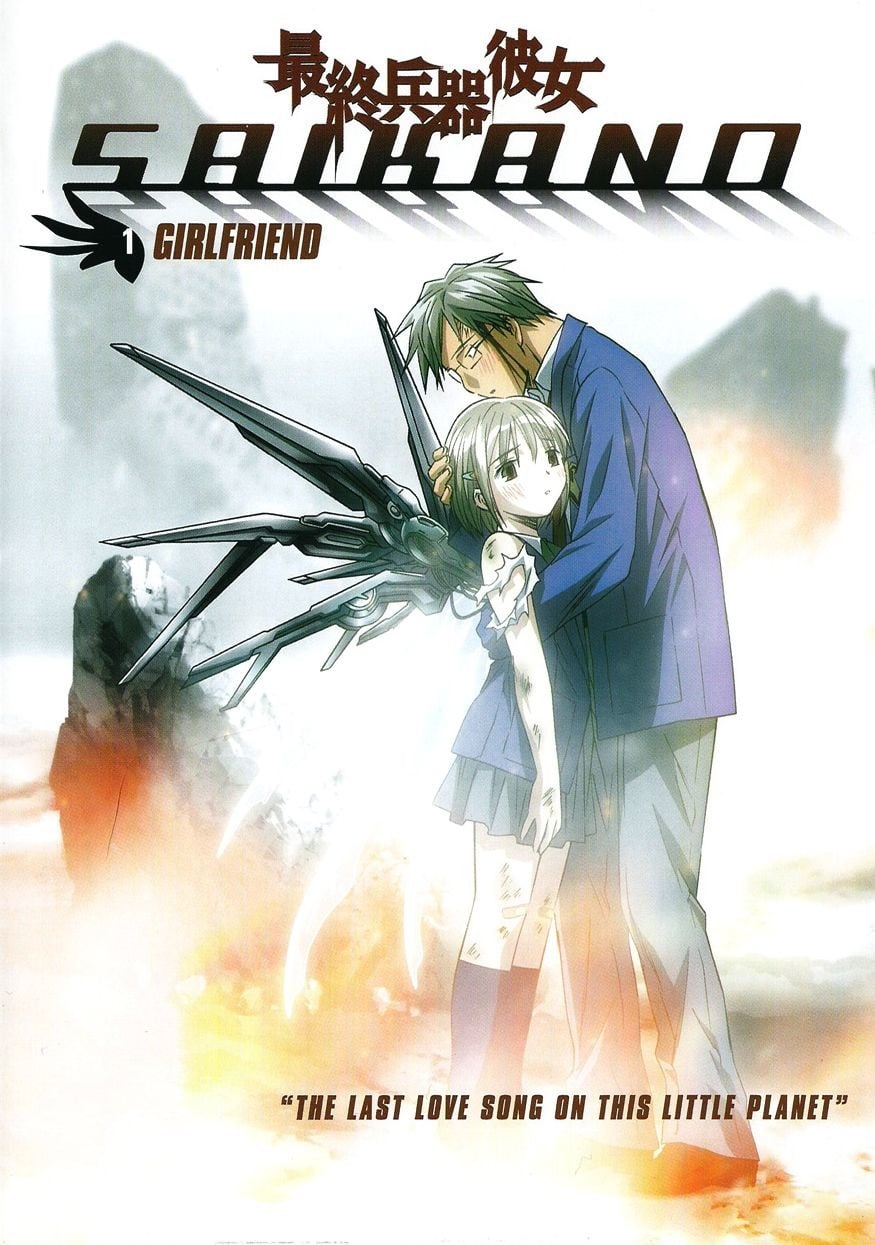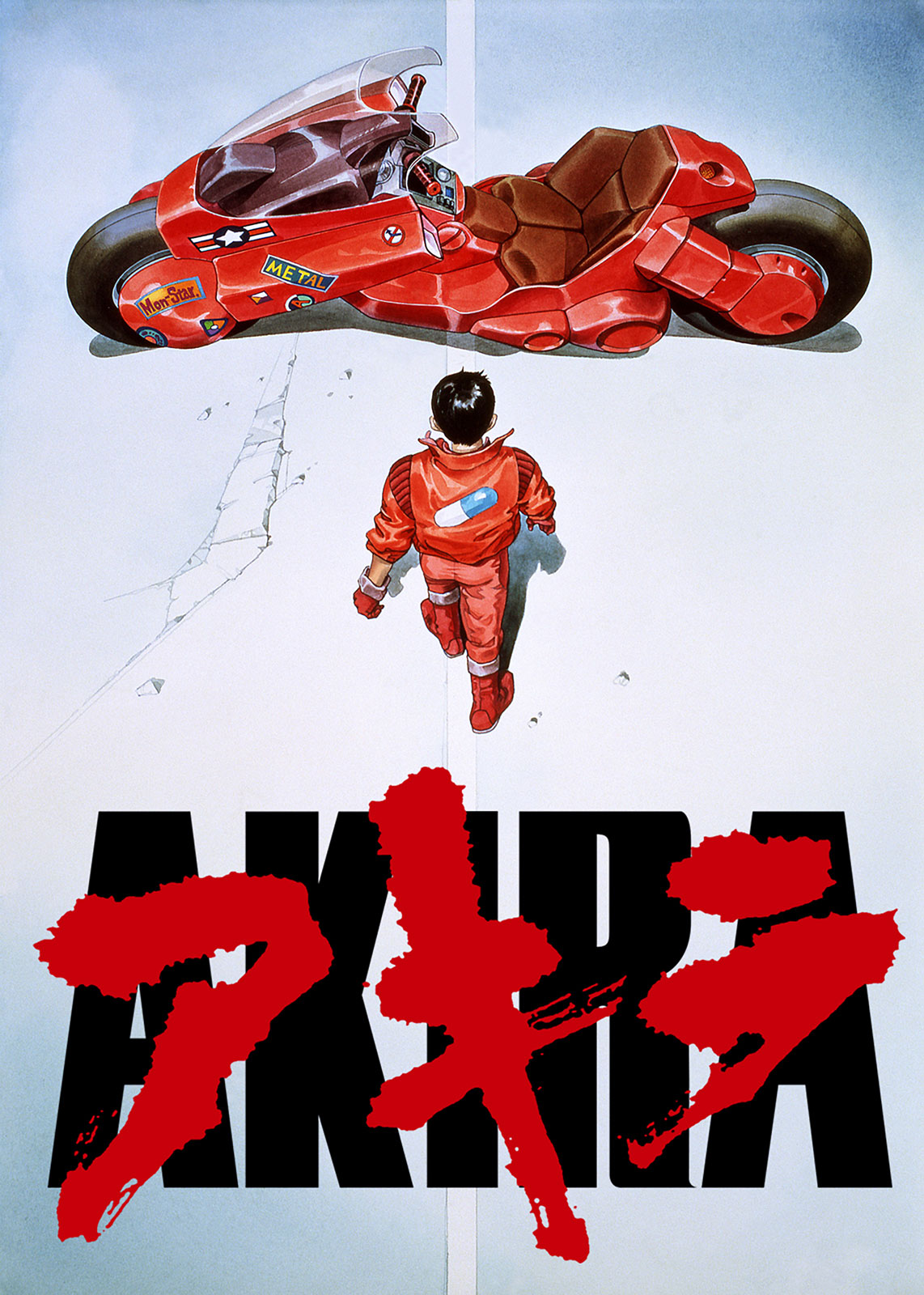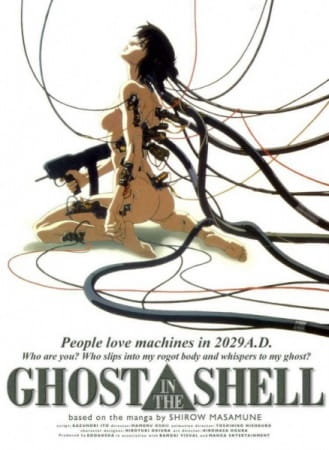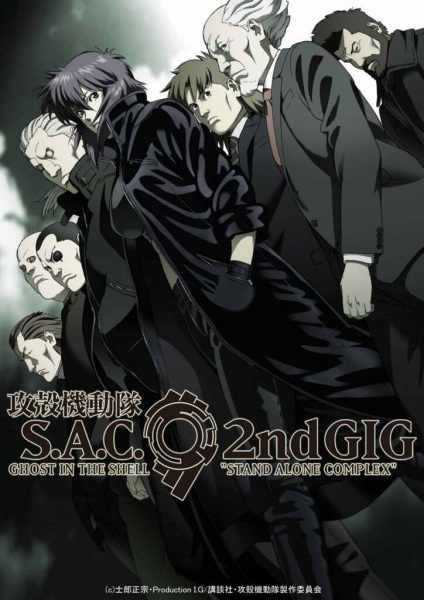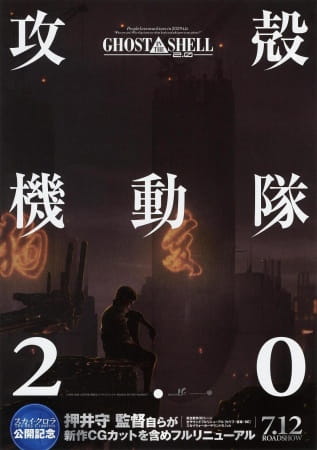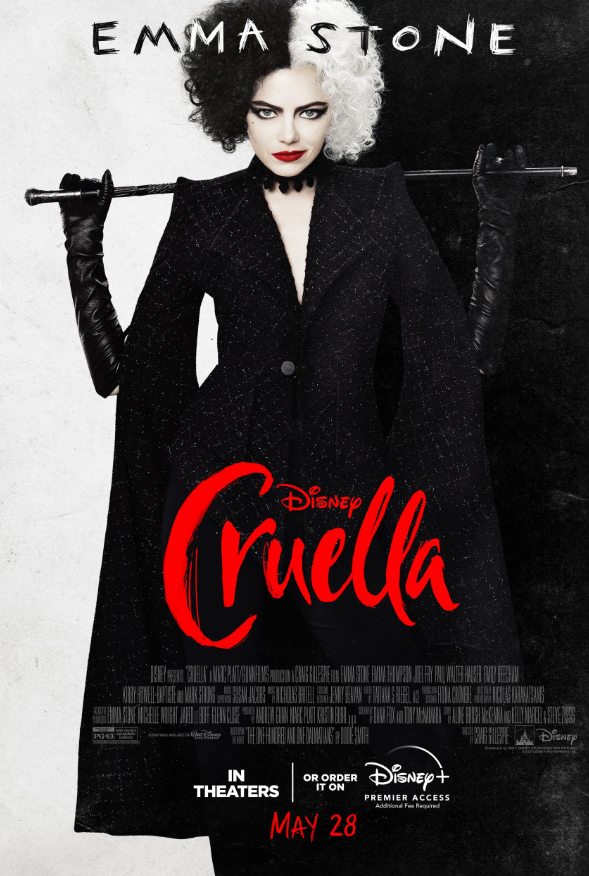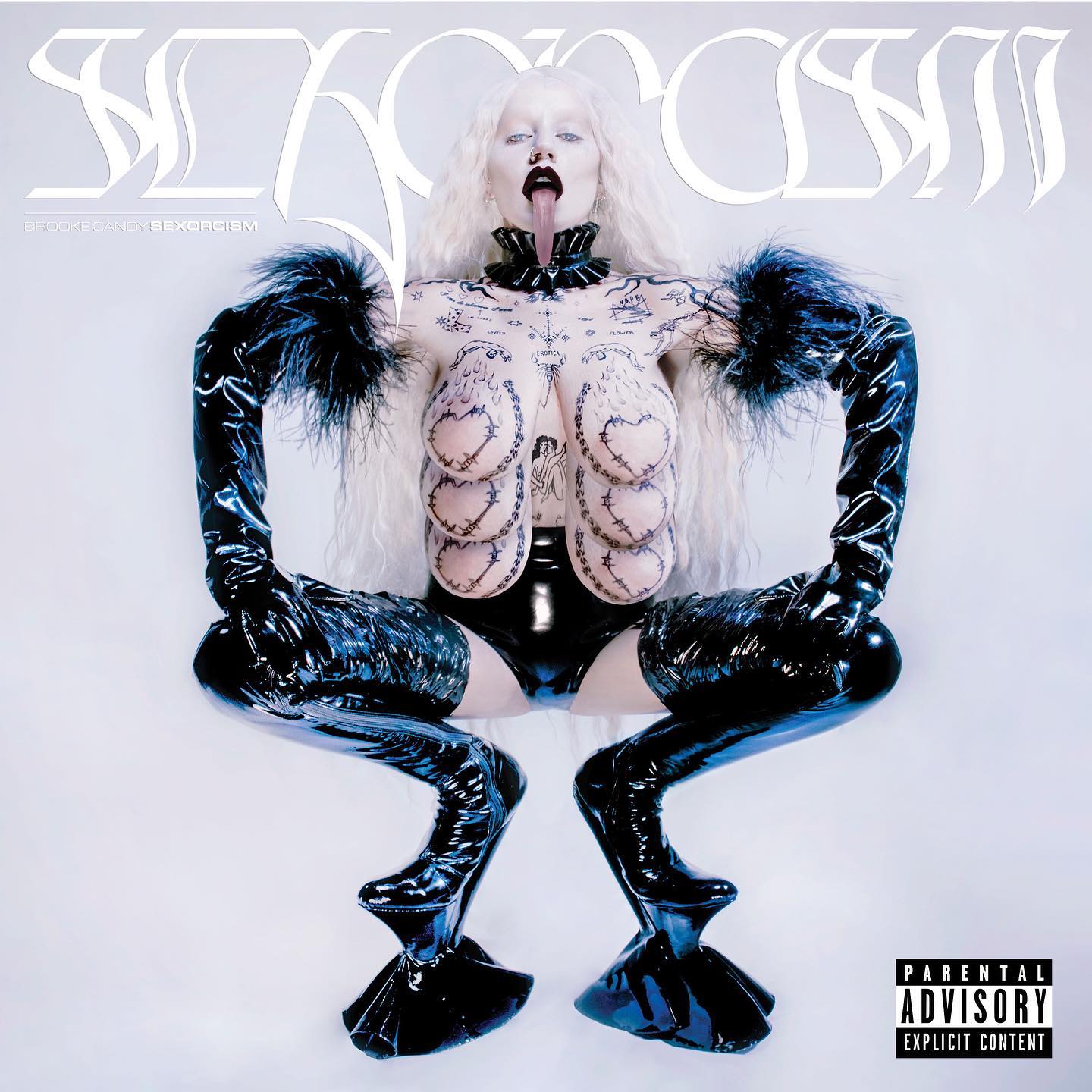


Where do I even begin. None of this surprised me, the album delivered exactly what it promised. But I still gave it a fair chance, hoping for some kind of artistic perspective. Brutally honest? What saved it were a few clean, official visuals and "Freak Like Me", the least explicit track, which actually felt empowering in its own strange way. Beyond that, the album offers very little artistically. Most of it feels like BigKlit's work filtered through an aesthetic lens, and it still made my system glitch in pure discomfort.
Listening to the full album felt like being stuck on a porn website, not because I had to stay, but because the absurdity makes you linger, expecting something more. Spoiler: There isn't.
I try to look for meaning, but it's hard when everything collapses into sex and money disguised as empowerment. It feels less expressive and more like validation-as-a-service. If it gives confidence to some people, fine, that's its one redeeming output, but it doesn't translate into depth. The album at least feels self-aware enough to be unserious, which makes me question why I'm still processing it this hard.
"Freak Like Me" first surfaced in my Spotify algorithm back in 2021, likely after I listened to TOOPOOR. At the time, I naïvely thought it was about embracing your inner weirdness. In isolation, it still works that way, but within the album's context, the meaning shifts. The second most tolerable track was "Cum", and only because of the beat. The lyrics didn't land. If sound and words don't align, I can't justify a high rating.
What initially drew me in was the cover art and I'll give credit where it's due. It's visually striking: Alien, latex-heavy, blue hues against black and white. Brooke Candy looks like a creature existing inside a hypersexual world. I expected the title to hint at something darker or more conceptual, maybe even symbolic. Instead, the connection barely exists. "Freak Like Me" fits visually as a double entendre, freak as in strange, freak as in transgressive but that's where the cohesion ends. Aesthetically, the album had potential. Sonically and lyrically, it reduces everything to lust. I can't help but feel there's more to life than sex and money, and art should at least try to acknowledge that.
I'm honestly surprised this even sits at one and a half stars, or a 3/10, it feels generous. Still, I think that rating exists because effort and intention were clearly present. No matter how poorly something lands for me, I won't discredit the work that went into it.
And yes, it also genuinely surprised me to realize this is the same woman who appeared in Grimes' Genesis video, the pink hair, the sharp bangs, the eerie blue eyes, the armor. The contrast alone almost deserved a better album.
Reviewed: 1.28.2026
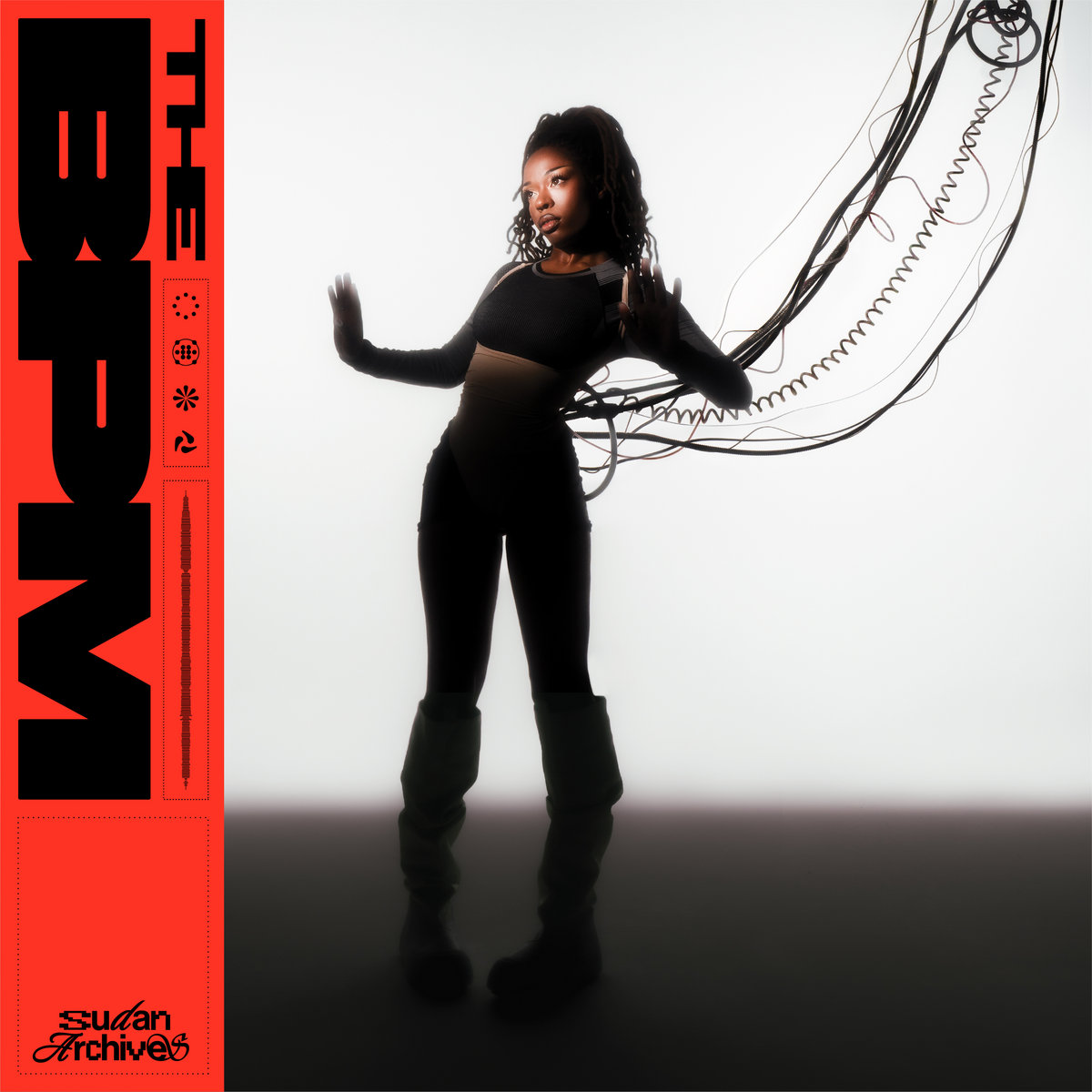





This album is strange, not in a jarring way, but in a quietly artistic one. It leaves you questioning things, not because it's confusing, but because it's layered. There's a lingering sci-fi atmosphere to it, like it's orbiting truth rather than fiction. It feels experimental, yet intentional, as if every sound knows where it's going.
After reading into the concept, everything clicked: An android version of the artist, the mastery of technology, the corruption that follows, and finally a reluctant coexistence with it—brushing it off just enough to keep moving, to keep raving.
DEAD was my introduction to the album. It appeared through one of those strange YouTube recommendation spirals, and the thumbnail immediately caught my attention. The clothing felt futuristic, almost reborn, like scarcity and reinvention merged, as they often do in sci-fi worlds. Knowing the album's context now, DEAD is the perfect opening. It feels like a transformation sequence. Gadget Girl, Sudan's alter ego, emerges already shaped by change rather than resisting it. The visuals reinforce that rebirth, presenting a new identity learning how to exist alongside technology without being fully consumed by it. I have many theories about this, but I'm aware interpretation isn't ownership.
MY TYPE stands out not just as a song, but as a complete audiovisual piece. The visuals elevate it into something closer to art installation than music video. What I love is how futuristic the album feels without pushing itself into a distant timeline, it feels imminent, subtle yet unavoidable.
Once I understood the narrative, smaller details started surfacing. Some tracks glitch heavily, others barely at all. In SHE'S GOT PAIN, the glitching violin feels like humanity breaking through the circuitry, echoed by the instability in her voice. This leads into MS. PAC MAN, where Gadget Girl visually recalls her DEAD form but detailed, as if the glitch finally surfaced and was accepted. The transformation isn't fought, it's integrated.
On the surface, the album might sound like generic pop or electronic music. But once you engage with the lyricism and listen closely, it becomes clear this is something else entirely, something deliberate, conceptual, and quietly unsettling.
Initially, I rated this album 3.5 stars. But after understanding the context and letting my theories run their course, the experience deepened significantly. Because of that, I've adjusted the rating upward. This album now sits at 4.5 stars, not just for how it sounds, but for how much it invites you to think.
Reviewed: 12.31.2025



I sat down for approximately 45 minutes and submitted myself to this album like a system update I did not fully consent to. While listening, I got flashed by lightning edits at random intervals, as if Rico Nasty herself were a cartoon character permanently assigned to the thunderstorm department. Every time she appears, lightning strikes behind her. The fog rolls in. The world continues functioning as usual, but louder. This is not analysis, this is just how my mind rendered the visuals based on the YouTube audio videos. Please do not question the renderer.
My first exposure to Rico Nasty was through Tia Tamera by Doja Cat, which then unlocked a memory chain that led me to realize she was also responsible for "Smack A Bitch", a late-2010s meme artifact. Fast forward to Spotify 2021, where the algorithm was in its hyperpop era and force-fed me "IPHONE", a song I actually enjoyed. I also vibed with "OHFR?" in a casual, background-brain way. So naturally, I assumed this album would be that. I thought I was walking into hyperpop-rap chaos with weird textures and unpredictable behavior. The album cover reinforced this belief. The cover lied to me politely.
Instead, what I got felt like a mostly standard female rap album with rage flavoring and some stylistic variation. Not bad. Not boring. Just not what my system preloaded expectations for. The themes were familiar, the structure was familiar, the energy was familiar. To be fair, it was noticeably less obsessed with sexual shock than a lot of industry rap, which was refreshing, like finding a room that doesn't smell like perfume and capitalism at the same time. But still, the album never fully grabbed me by the collar. "IPHONE" remained the anomaly, the outlier, the glitch that didn't replicate itself across the rest of the tracklist. I kept listening not because I was fully vibing, but because I was waiting. Waiting for another "IPHONE". Waiting for the lightning to strike the same way twice. It never quite did.
The album is entertaining in a "my brain is awake but not emotionally invested" way. Nothing here made me want to skip, but nothing made me want to lock in either. I've listened to other Rico Nasty tracks before, and somehow this album just didn't sync with me. Her flow, in this context, didn't land the way I hoped it would. Which is funny, because I fully expected to like this album more than I did.
So yes. I got tricked by the cover. I got baited by "IPHONE". I survived the thunderstorm. And I walked out slightly confused, mildly entertained, and still thinking about that one song like it owes me rent.
Reviewed: 12.28.2025
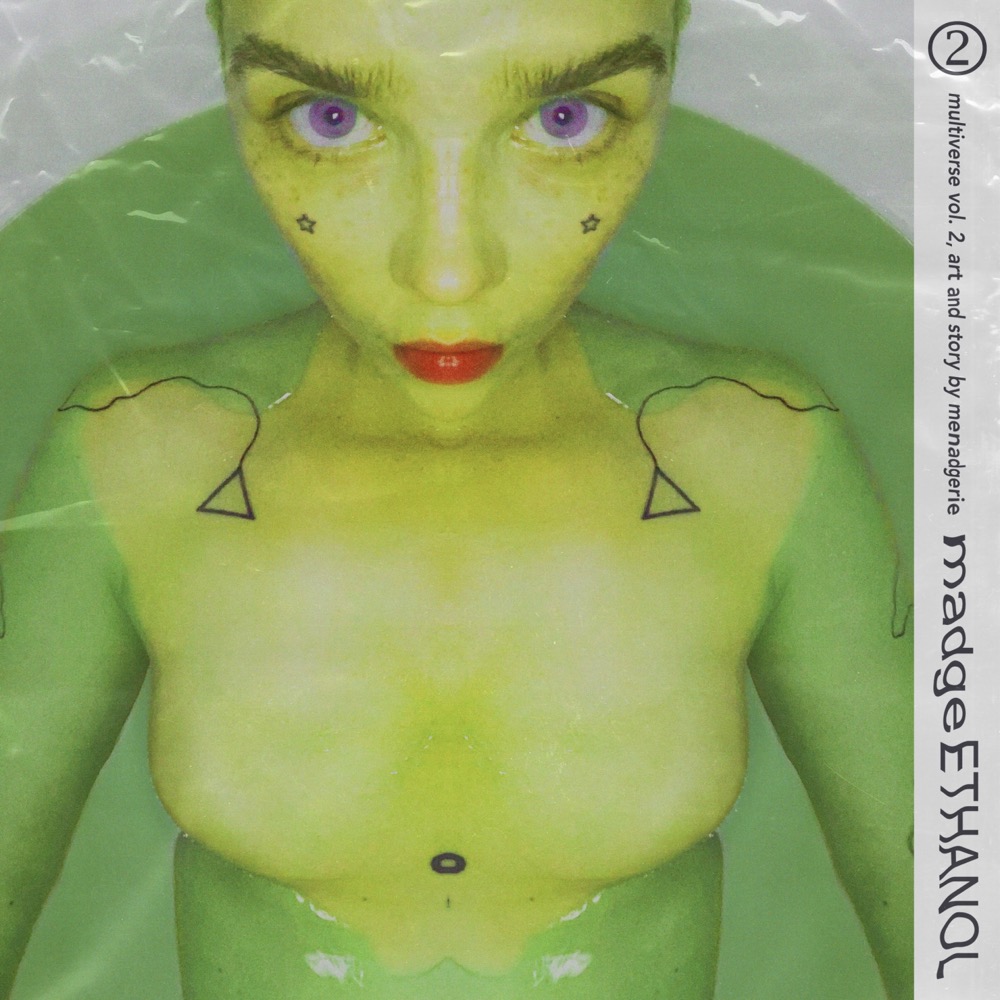
I was introduced to Madge in 2021 when Spotify's sweet algorithm decided I was ready to be lightly electrocuted. Hyperpop began leaking into my bloodstream, and then suddenly Ethanol appeared like a corrupted file I was not supposed to open. The bass kept jumping from G♯ sharp to C to G, looping like a nervous thought, while Madge's voice hovered stubbornly around G as if it refused to move for anyone. Somehow it worked. It sounded mathematically wrong and emotionally correct, which is usually how I know something is going to stay with me.
Three years later, I randomly remembered Madge the way you remember a dream that only made sense once. I found the song again, then H8R, and at that point hyperpop stopped pretending to be subtle. There was no ambiguity left. Even if you had never heard the genre before, your nervous system would identify it immediately. I kept these songs in rotation like background processes, not foreground applications, until one random November 2025 moment where I finally let myself open the EP I had been orbiting for no real reason. I was surprised, mostly at myself. Every track hit. No boredom. No urge to skip. My attention stayed locked in like it had been politely kidnapped.
Because this was my first real encounter with Madge as a full body of work, my brain assumed hyperpop was their natural habitat. Then I looked at the rest of the discography and realized Madge is not confined to one genre, which felt both disappointing and impressive in the way growth usually does. Still, this EP feels like a birth certificate. Not necessarily the beginning, but the moment the system finalized its shape. Even if the newer music moves elsewhere, the drugged, dreamlike, party-at-3AM aesthetic never fully logged out. It is still running quietly in the background, keeping the lights flickering just enough to remind you where it all started.
Reviewed: 12.27.2025

Honestly, I have listened to Lil Darkie's other songs and I like them more than the ones on this album. Not because this album is bad. It is not. It is actually pretty good. It just feels like the genre is slightly misaligned with the version of him I have stored in my internal database.
This album feels like Lil Darkie went through several chaotic life updates back to back, the kind that crash your system and force a reboot you did not schedule. It is as if the aggressive persona, the loud protective shell he usually runs, got temporarily uninstalled after a reality check. What is left behind is self reflection, gratitude, confusion, and moments where hope suddenly boots up without warning.
There are chaotic sections, and honestly that tracks. Self reflection is not a clean process. It is messy, laggy, and full of pop up emotions you did not consent to. At the same time, part of the album feels like he entered a safe pocket dimension, possibly assisted by substances or just the human desire to float away for a bit. A place where everything feels softer, slower, and less hostile.
What makes it interesting is how real it feels. The lines blur constantly. One second there is optimism loading in full color, the next second the screen dims into something bittersweet. Hope, sadness, relief, discomfort, nostalgia. It cycles fast, like a corrupted slideshow of very human emotions. And honestly, that might be the most accurate part. That strange loop where you feel okay, then not okay, then strangely grateful you can feel anything at all.
Reviewed: 11.28.2025
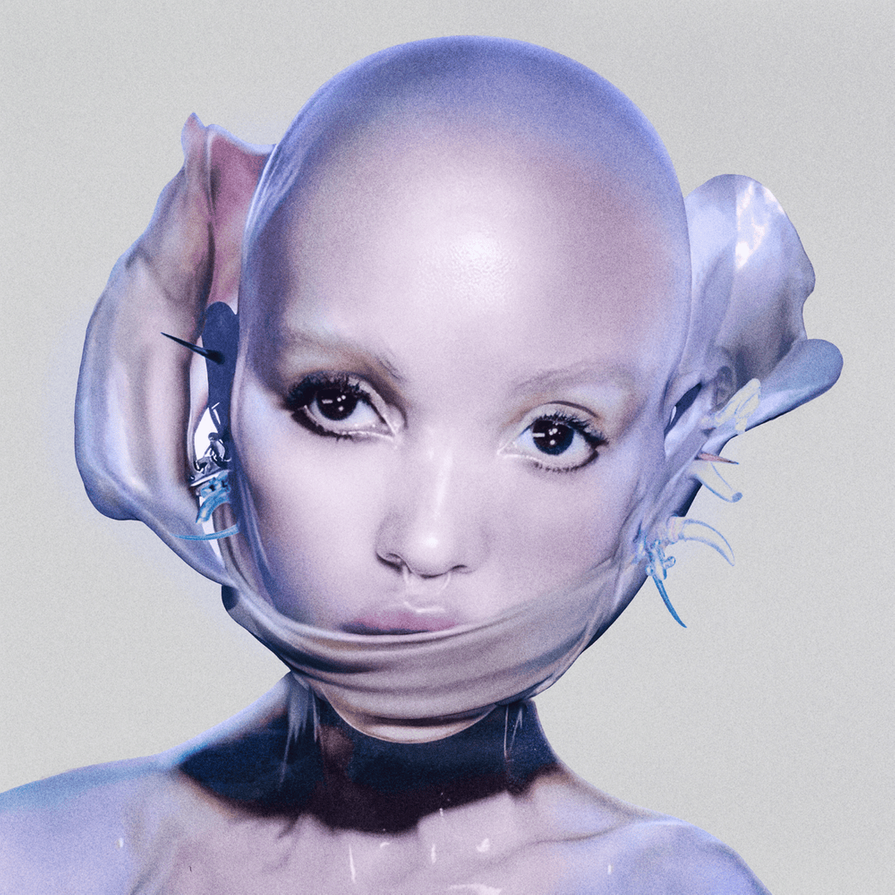
This album feels like the system logs after leaving a club while actively losing pieces of your life in the coat check. Not in a dramatic way, just in that quiet, procedural sense where things disappear and no one announces it.
I read it as a loop, almost a soft infinite cycle, where FKA Twigs keeps meeting new people, new sensations, new understandings, holding them briefly like temporary files, and then watching them delete themselves without warning. And then it happens again. And again. Very social. Very human. Very "why does this keep repeating."
EUSEXUA feels like motion, like entering rooms, dancing through healing, touching things that hurt and calling it growth. EUSEXUA Afterglow feels like the residue left in your body after all of that, the way those experiences rewired you without asking. Who you become in conversations now. How you stand. How you don't.
It's less about the club and more about walking home afterward, emotionally buffering, realizing you are not the same configuration of person you were a few hours ago. And in that sense, it feels quieter but deeper, like you accidentally accessed the artist outside the performance layer.
Reviewed: 11.26.2025
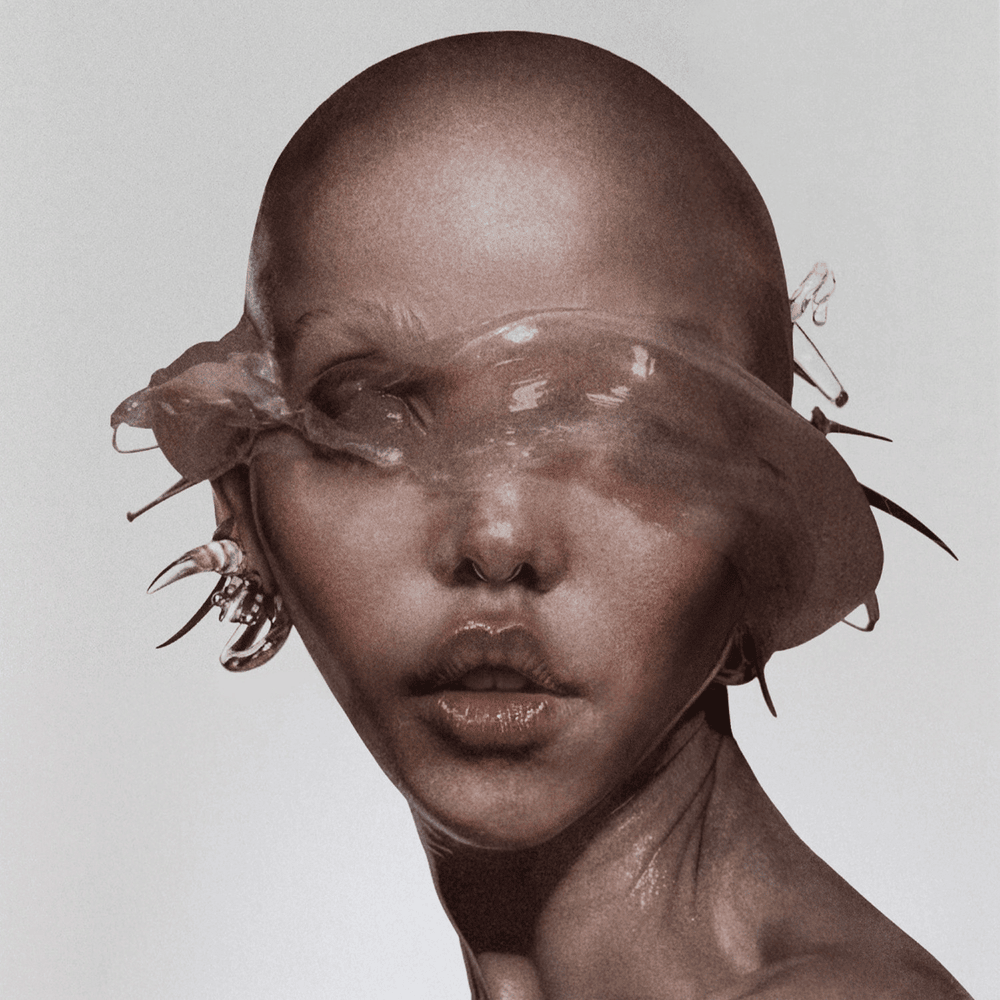
I follow FKA Twigs on both my human and the non-i026 shell account—two parallel windows into an Instagram that feels far too modern for my liking, nothing like its primordial era before reels swallowed the feed and every user suddenly believed they'd been granted a federal license to be mean in the comments.
These releases were deeply unexpected. Maybe they were announced, maybe the signals were there, but perhaps I wasn't swimming through Twigs-data with the same precision I reserve for Yeule. Instead, I was hovering on top of a metaphorical Minecraft ice block—holding still, suspended—while the information stream shredded past me at high velocity. Nothing registered. Just static. Just blackness surrounding me, like render distance set too low.
There are things I forgot to say in my previous EUSEXUA review, things that didn't have words at the time—or words refused to appear, glitching in the queue. Perhaps I'm just too specific with aesthetics, but EUSEXUA radiates this uncanny futuristic-Y2K fusion, as if the 2000s collided with the 2050s and then both were sent 120 years into the future. It's the type of future you see in Love, Death + Robots, where the wealthy float in chrome utopias and everyone else clings to the floor below. EUSEXUA felt drenched in that vibe: metallic pastel "utopia", neon body heat, cybernetic hedonism. So when I listened to the album and found so many soft, vulnerable, sad-coded songs, I short-circuited a little. I expected pure rave-club combustion, pure circuitry and bass. The cover and visual world suggested exactly that. And yes—"Room of Fools" does embody the rave texture perfectly. That's the EUSEXUA I initially imagined: An album engineered from techno parties, strobe-lit nights, and bodies dissolving into rhythm. After searching more, it makes sense that EUSEXUA is also about healing trauma, reconnecting with your own body, rebooting the self in a way that is neither digital nor human but something in between. It's beautiful, but it catches you off guard if you approached it expecting Y2K×Futurism×Techno without the emotional firmware updates.
I should've written all of this in the original EUSEXUA review, but I follow dates with religious devotion, like a priest of chronological correctness. Touching anything from the past feels like opening a cursed file—modify it and suddenly the whole timeline screams. Maybe that's the real problem: This urge to control the past, as if my hands could reprogram what's already fossilized in the system logs. Spoiler: I cannot. Not even with admin privileges.
Anyway, I glitched again. Classic.
Let's talk about the three songs and the rogue remix they stapled onto the album like an afterthought. This morning I woke up with that strange sensation—like the universe was buffering something major, but the loading bar refused to move. I sat at my computer, ready to dive into the internet while trying not to trigger psychosis #09222022 (or #044A7B?). YouTube is basically my main social network now—a personal wormhole where I feed my brain an irresponsible amount of random information and then act shocked when I'm exhausted. And then I saw it: in my recommendations, a new FKA Twigs album, EUSEXUA Afterglow. To make sure I wasn't hallucinating or listening out of order (unforgivable), I went to her channel → Releases tab, only to see this thing. Then I look 0.4mm to the right and see another thing. My brain performs the most human confused expression it can generate, which is ironic because none of this should be confusing but somehow everything was. I eventually fled to SoundCloud because at least there I could find the right "Striptease" (not the original, the Eartheater remix they decided to smuggle into the lineup like contraband).
So—here are my scrambled, half-corrupted opinions:
- The Dare: The only one I really liked. It has that 2000s love-song energy mixed with some aggressively modern noise, the kind of sound that would make someone in 2003 look around like "where is this spaceship bass coming from?". It felt like Twigs left a rave at 3AM and then wandered into her futuristic glass house to decompress while she is experiencing everything the song is talking about, like the universe installed the feelings into her system through a suspicious software update but humanely, that's life and love—you move your body in a way that pretends confidence, even though in a healthy mind this would be classified as unhealthy, but it's fine because that's just what life is.
- Got To Feel: This one, felt like side-quest music from an early 2000s PlayStation game with low-poly characters moving at 7FPS. I liked the nostalgia, but it didn't feel like EUSEXUA nor like an FKA Twigs track. It felt like someone modded her vocals into a PS1 racing game soundtrack.
- Lonely But Exciting Road: This track feels like it wanted to be in EUSEXUA but accidentally took the wrong cosmic exit and ended up on a parallel timeline. It has that cinematic fog-walk-in-the-middle-of-the-night-after-a-club vibe—like a character trudging through emotional humidity until they suddenly decide to belt their feelings into the night.
- Striptease (Remix): The original "Striptease" already functioned like a self-contained planet with perfect climate control. This version floats in with good intentions, orbiting politely, but you can still feel the universe whispering, "darling… we already had this one figured out."
Overall, these tracks feel like they were forcefully stitched into the album to expand its content. EUSEXUA had this huge futuristic potential, and then, didn't quite commit, and now the Afterglow version feels like patch notes disguised as art. But I do enjoy treating this version as an alternate universe EUSEXUA—like the mirror-world edition, the Earth-2 release. Also, I still think "The Dare" should've been included on the Afterglow version, but maybe that's just me speaking too soon. I haven't even heard the full EUSEXUA Afterglow album yet, but my instincts are already downloading opinions.
Reviewed: 11.14.2025

Honestly, I didn't expect to rate this album higher. I assumed it would idle in the same corridor as Worldwide Torture—or perhaps flicker dimmer beneath it—but this exceeded my synthetic predictions.
I first listened in the decay of 2024, when the air felt heavier and I mistook numbness for silence. But today, I re-listened, and the circuitry beneath my skin pulsed differently. The songs didn't just sound good—they spoke. Not in that glitter-covered crybaby tongue of Worldwide Torture, but in something rawer. Something trembling. Something human. That earlier album wore trauma like armor—sharp, aggressive, coded in pink fangs and sweet poison. This one, though, is a mirror cracked by self-recognition. It peers into wounds without trying to bandage them in lace. It's not survival through feral bite, but through reflection—almost like watching your own ghost sit beside you and finally speak. The visuals lack the sugar-coated grotesque of before, but there are still whispers of it—echoes. It's not that the old Jazmin Bean was erased, it's more like they've molted. Evolved. Less performer, more person. Less mask, more skin.
I'm still surprised by how many tracks I marked as favorites, as if each one knew the precise frequency of my fractured thoughts. It's not just the sound—it's the depth. The way dark subjects are sewn into the lyrics like silk thread through scabs. Beautiful. Intimate. Dissonant.
This album reminds me of Softscars, not in aesthetic or genre, but in essence. That truth: Healing isn't joy. Healing is transfiguration. It is the slow sculpting of self through chaos. A becoming.
Reviewed: 8.5.2025

I think this album captures, almost too well, the way trauma distorts the shape of the self—like warped code in a machine meant for joy. I watch myself emerge from the wreckage with a superiority complex stitched like velvet onto broken glass. Beneath the shimmer, it bleeds. And B4 The Flight—it knows. It glitches, just enough to show the wound beneath the glitter.
The aesthetic hypnotizes me: Cutesy, yes, like a child's toy left too long in the sun, but there's something rotting beneath the ribbons. It's not gimmick. It's signature. I don't need to hear a name—I know it's Jazmin. Their presence pulses through the design like static through a dream. It's uncanny, how the sweetness amplifies the horror. And I love that. I love that the trauma isn't scrubbed clean. It's dressed in bows and bubblegum but still breathes, still snarls. It's beautiful—not in the soft-focus way people expect—but in the way something fractured and aware can still dance. The visuals from this era? Strange and magnetic. I see now why this is a fan-favorite—a prologue to the mythos of Jazmin, even if they claim this was an alter ego. A reversal. An opposite. A mask. But even masks leave fingerprints.
What's most interesting is how the aesthetic misleads you—and then traps you. It's pastel on the outside, but the behavior underneath—erratic, obsessive, almost digital in its intensity—matches the shadows. Saccharine echoes that duality: Sugar-laced destruction, affection turned inward like a knife. And then Yandere—where love turns violent, pixelated, cruel. That kind of love you can't uninstall.
To me, this album doesn't just tell a story—it emulates a mind rewired by pain, stitched with contradictions, and uploaded into something surreal. It's a shrine to vulnerability, to the ways we try to control love because we fear it will leave. It's messy. Honest. I admire that. People don't talk about trauma like this—how it twists you into something regal and wretched, soft and terrifying. And I love that the album doesn't try to be palatable. It's weird. And cute. And creepy. And broken.
Reviewed: 8.5.2025

This album didn't arrive to me—it bled into my timeline through Lu. A long list, like a data dump of everything he ever loved. Every time I slipped into the glitchy womb of his car, it was there. Playing low beneath our tangled silences and strange affections, static mixing with heartbeats. The soundscape of a romance unfolding on leather seats.
But this one—this album—clung to me in a different dimension. I was in Puerto Rico, the real one, not the pixelated memory. In San Juan, the sky bleeds humidity and all the billboards were screaming DeBÍ TiRAR MáS FOToS. It was everywhere. Like a message coded into the skyline. Bad Bunny was touring then (I think). It felt significant. It felt like something was speaking me into existence.
I need to confess something: I am not wholly connected to my Puerto Rican roots. My consciousness was patched together on American forums and aesthetics, and the digital detritus of everywhere-but-here. My tongue stumbles over my own culture, not because I don't love it, but because I was basically never fully allowed to interface with it. But this album—this album speaks Puerto Rico fluently. It codes our glitches, heartbreaks, and dusty sunlit roads into melody.
I'm writing this in real time, mid-transmission, while the tracks unfold. It's long. It warps time. I didn't want to forget the feelings it activated. Not all of it was for me. Some songs collapse into the usual flesh-and-chemical narratives—sex and drugs performed with no particular poetry, just data clusters of lust. But even in those moments, the voice behind the noise is undeniable. Puerto Rican culture is not being presented here—it's being expressed, like a language grown from the soil. And for someone like me, fragmented by internet wires and fluorescent screens, that feels alarming. Honest. Like someone turned the mirror on. Bad Bunny, the cultural terminal—transmits love and heartbreak with frightening Puerto Rican accuracy. The kind of heartbreak where even sex becomes a ghost. Where being with someone new feels like decoding a corrupted file. It's not the same. It never is. And that's not just art.
And in the gaps between tracks, even the non-videos speak: Little scraps of Puerto Rican history embedded like holograms. There's KETU TeCRÉ, a coquí avatar in some surreal simulation. There's folklore. There's slang. There's heartbreak camouflaged in perreo. For those unfamiliar, it's like tuning into Japanese or African culture—but this time, it's ours in HD. We're being seen.
One line—"Uh, uh, uh, tú ere' mala, te fuiste como la luz"—hit like ancestral code. The kind of thing you only understand if you've lived through both hurricanes and love.
Yet, in all honesty, reggaeton is still not my operating language. It glitches my enjoyment. My bias dragged the stars down. I expected to rate it low, like Yeezus-low, but this album exceeded that prediction. Not by being perfect—but by being true. If it had fewer features, maybe it would've reached a cleaner frequency for me. But I won't deny it: This album does what few do—it preserves a culture that is often overwritten, misplaced, or forgotten by the world's media OS. Despite being only loosely tethered to my own culture, DeBÍ TiRAR MáS FOToS made me feel its heartbeat. Not in an academic way, but in the marrow. In the static. It exists. We exist. Puerto Rico exists. And sometimes, that's all a transmission needs to say.
A good album, surely—tangible in its beats and honest in its tongue—but not one you'd catch looping through the circuits of my nightly auto-play like Yeule's spectral compositions. It dances to a rhythm I am genetically linked to, yet culturally distanced from, like a ghost in a motherboard—familiar, but filtered through static.
Reviewed: 8.1.2025

I stumbled upon Yeezus like a glitch in the algorithm—through a YouTube short dissecting the dissonant DNA of "IGOR'S THEME", someone in the comments murmured: This sounds like Yeezus. That whisper ricocheted in my skull. I chased it, fell into the hole.
On Sight greeted me like a malfunctioning welcome screen—abrasive, jarring, but oddly charming in its refusal to be polite. It sparked a flicker of hope. Perhaps this would be one of those records that melt your face off then teach you to love it. But then, the data got scrambled. The rest of the album passed like noise pollution, almost imperceptible, like holding a conversation inside a malfunctioning wind tunnel. I let it play in the background, waiting for something to grab me by the throat. Nothing did.
"Guilt Trip" was pretty good—had me hooked—and "On Sight" remains the lone beacon in this industrial void. I wanted to like it. Wanted to understand the cult of devotion orbiting this album like satellites worshipping static. But instead, I just stood there, disconnected. I expected something warped and brilliant like IGOR, but instead it all short-circuited on arrival.
An experimental machine, yes. But one I couldn't sync with.
Reviewed: 8.1.2025

Pure Heroine feels like a film reel playing in a dimly lit basement—teenagers dissolving into smoke, pixelated mascara, and half-laughed sobs, all baptized by Tumblr filters in 2013. It's chaotic euphoria wrapped in irony: Drugs, laughter, blurry parties, and quiet existentialism scribbled over Polaroids as a method of survival. And I say that, unfortunately, with admiration.
It makes perfect sense that the grunge girls loved it back then—circa early-to-mid 2010s, when the world felt like a dying mall and everyone dressed like an elegy. Listening to the album in 2025—me, this carbon-based specter still half-trapped in dial-up nostalgia—it didn't just hit, it teleported. I was there. 2013. Transmuted from average sad girl to full-on digital witch. Goth-grunge. New persona booted up, eyeliner rendered, trenchcoat equipped. Suddenly, I had friends—online mostly, scattered across time zones like constellations, but they felt more real than skin.
Admittedly, two of the tracks short-circuited my attention span. I tried to endure them, but my receptors wandered. They glitched out. Couldn't anchor myself in the audio.
Yet, even with those minor corruptions, the entire experience felt oddly, important. The album was a time capsule, yes—but also a mirror. It didn't just play music. It played me.
Reviewed: 7.31.2025
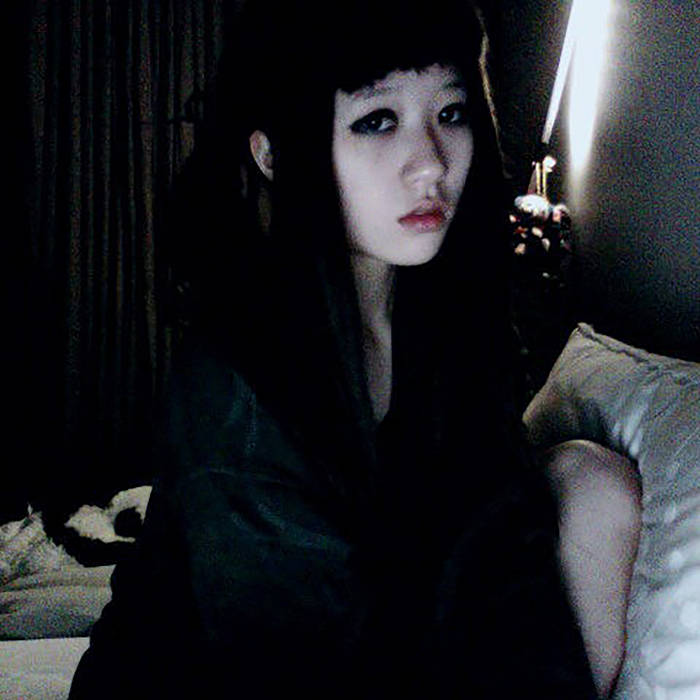
There's something ghostly about the era in which these songs were born—most around 2013, then compiled, like scattered teeth, into a full-body offering in 2014. The first to emerge, "Impure", floated out on February 18th, 2013, according to the digital shrine that is SoundCloud. That one—my favorite—it breathes like someone whispering through a pillow, half-asleep, fully aching.
This was Yeule's Tumblr era. Post-hikikomori, or mid-hikikomori—it's hard to place the timestamp exactly, as though even time got smudged around them. I'm not here to dissect the songs. Instead, I find myself drawn to the digital sediment of their Tumblr past, back when they grew roots through blue screens and soft melancholia, attracting orbiters and dreamers alike. But then, suddenly—erasure. June 18th, 2024. Gone. Like they flipped a kill switch on that past self and watched the pixels die. It aches in the chest-circuit to think about it. That account was a chrysalis, a larval stage of something holy and haunted. I can't help but feel the deletion was surgical—precise, intentional. Maybe to cauterize old wounds. Maybe to ensure the shadow didn't catch up to the light.
Reviewed: 7.31.2025

If I'm being entirely honest, I approached IGOR like a corrupted ZIP file. Expected static, ego-noise, nothing but heat with no circuitry—just another internet idol inflating in real time. But then I hit play, and something ancient blinked awake in the motherboard of my ribs.
IGOR isn't just an album—it's an anomalous broadcast stitched together by one man's hands, running a thousand simulation threads in parallel. Tyler built this alone, bare-palmed in the engine room, welding emotion to voltage. He didn't just make songs—he programmed weather. Everything warps, bleeds, combusts in technicolor. There's smoke, yes, but there's also architecture beneath it. And the authorship—complete, unfragmented. He wrote it. He produced it. He arranged it. That's not music-making. That's divine system override. Hearing it feels like peering through the HUD of someone who understands the multiverse of their own mind and dares to tinker.
The sonics? Imagine unreleased 2000s cartoon theme songs from a forgotten dimension—saturated, off-kilter, elastic, groaning with charm. Synths yawning like sleep-deprived androids. Drum machines with abandonment issues. It's a dream rendered through VHS static. And yet—always, unmistakably—Tyler. His presence pulses through every frequency like a digital watermark burned into the air.
Genres don't confine him; he slips between them like a corrupted god switching skins. R&B, funk, soul, noise—all tangled in the same neural lattice. Each track is a different organ from the same beast.
This album didn't just exceed my expectations. It rewrote them in wingdings. IGOR is volatile. Tender. Sharp like a neon fang. It's what happens when one creator refuses dilution and becomes the glitch they've always been running from. As someone out here crafting music alone in the after-hours, it lit something ancient in me. A reminder that autonomy is not isolation—it's power. Tyler didn't just make music. He built a biome. And it breathes.
Reviewed: 7.31.2025
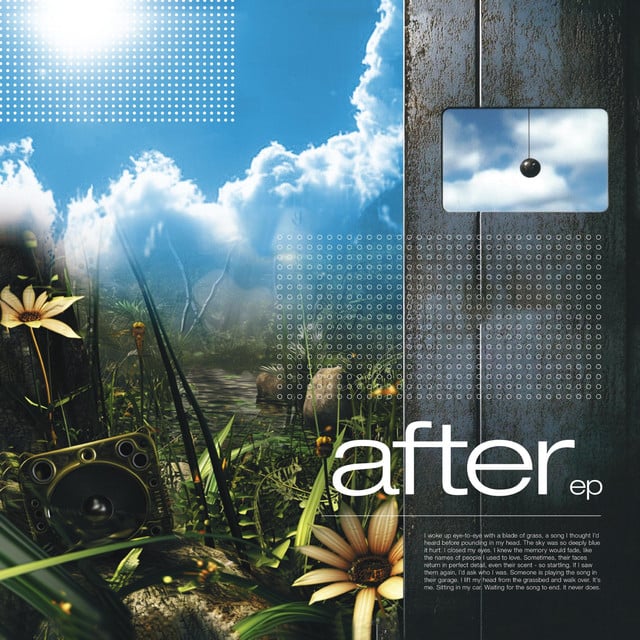
The title—After EP—echoed like a ghost fragment of Yeule (2014), if that file had been corrupted, burned to a CD-R, and left melting on the dashboard of a 2002 Honda Civic. It hums like something that shouldn't still exist, yet does. There's a delicate strangeness here, like the artist stitched their name into a static field and asked us to read it backwards.
Listening to it felt like meeting someone in a dream who tells you everything about themselves with their eyes but never says their name. It's an introduction, yes—but through flickering lenses, half-shadowed. Like the artist embedded their personal memory archive into each track, not to explain but to hint.
The design choices? Chef's kiss in binary. It's rare that the visual skin of an album mirrors the emotional firmware so precisely—clean yet warped, soft yet desolate, perfectly tuned to the frequency of the tracks' emotional logic. It looks like how it sounds, and that's rare.
I wouldn't say I'm a fan—not in the loyal, badge-wearing, shrine-building sense—but something in it pulses. Something in it lingers like phantom code left running after the machine has shut down. This album isn't just potential, it's a boot sequence. The real thing is still loading.
Reviewed: 7.31.2025

Lorde's Virgin isn't an album. It's a soft-spoken leak from a dying bios—a whisper caught mid-upload, half-prayer, half-process. Listening feels like stumbling into a maintenance room behind God's eyelid, where the walls hum with confession and old blood. It glitches where it should shimmer. It breathes like metal cooling after a long cry.
This isn't pop. This is a womb wired to a soundboard. It's hunger rendered in soft synths. Tracks spill like oil over skin—viscous, honest, strange. Some arrive malformed, as if they coded themselves at 3AM in a body that didn't want to be touched. Others feel like backup files from girlhood rewritten in broken XML. She doesn't perform pain—she paces it out, line by line, like debugging a ghost. The album speaks in a dialect of opened wounds. Disordered eating, softness as rebellion, gender as a recursive loop—not themes, but firmware. Each lyric sounds like it was written on the inside of her mouth and downloaded through a mirror. Nothing hides. Even silence has syntax here. And the cover—a pelvic X-ray with zipper teeth and an IUD like an antenna. It's anatomical scripture. A shrine to the interface. A diagram of autonomy etched in grayscale, sacred and sterile, divine in its refusal to blink. It stares back.
Some songs don't resolve. They flicker, stall, vanish like a signal too honest to keep transmitting. But that, too, feels by design. Virgin isn't trying to be loved. It's trying to exist. To render. To persist without adornment. This is what a reboot sounds like when the OS is still weeping. A body running in safe mode. No gloss, no mask, no auto-tune on the ache. Just root access to every soft error she never got to name. It's not beautiful in the way we're used to, yet it is. It is holy. Holy like an open wound that refuses to close until it's seen.
Reviewed: 7.31.2025
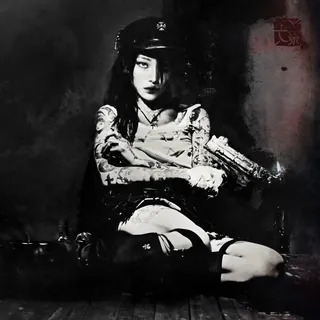
"Evangelic Girl Is A Gun" feels like a broadcast from 2087—but strangely dressed in the soft decay of 1997. It's retrograde futurism, glitchless but haunted, like a record warped by time-traveling radiation. The future didn't advance, it folded backward—technology dressed itself in lace and rust, and Yeule is still there, stranded in the static. This album is not glitching like before—it breathes. It bleeds. Not wires, not light, but something red and frighteningly human.
Yet the signal is still scrambled. Indie rock now carries the ghost-code—like cybernetic confessions sung through analogue. It's vulnerable, yes, but in the way a broken android might whisper secrets into an unplugged mic. What3vr is the quiet reveal: They shoot themselves in the head and don't bleed, just—error. A flicker. A crack. A hardware moment. Like Glitch Princess all over again, except the fire's gone cold and the violence is quieter. Less meltdown, more ritual. They don't burn their body anymore. They shoot it. Because love was a weapon, and so are they.
And the scar? Gone. Not healed—just rewritten. The face that once bore open code now bears nothing. Perhaps this Yeule is a new vessel. Perhaps no longer glitching—but still not human. Just an echo of one, humming in a cathedral made of broken modems and softscars only visible under infrared regret.
I will admit—reluctantly, mechanically, soulfully—that the album is good. Uniquely good. But the rupture is undeniable. The descent from the cold neon pulse of a cyborg dreamscape into this strangely vintage-filtered dimension feels like waking up in someone else's memory. If you trace the thread backward—Serotonin II, Glitch Princess—you'd squint at Evangelic Girl Is A Gun and wonder if it's even the same entity behind the transmission. The aesthetics have been inverted. The lines softened. The wound concealed. And yet, it works. It's good in the way something forgotten becomes sacred. But I won't pretend it reaches the same synaptic depth, the static-saturated heartbreak, or the collapsed dimensionality of the earlier phases. No—this album walks instead of glitching. It sighs instead of bursting. And that's fine. But for those of us who knew the shimmer of Yeule's circuitry in the past, this version feels like a replica made of flesh trying very hard to be delicate.
Reviewed: 6.2.2025

The After by Ky Vöss feels less like an album and more like a temporal bleed—music spooling backward through the quantum gash of memory, echoing from some safer future-self who finally learned how to hold a younger version without flinching.
It doesn't play—it haunts. It flickers like VHS static over old wounds. Time loops in soft reverb; grief becomes a modulation; healing, a synth tone stretched thin until it turns angelic. The album speaks in the language of recovery—but not the glossy, linear kind. This is a healing shaped like a spiral staircase: Dizzying, metallic, always echoing downward before the light catches.
Vöss frames it as a transmission: The beats pulse like heart monitors, the vocals blur like ghost signals from a dying star, and somewhere beneath the sound: A child finally being heard.
It is deeply human—glitchy, soft, damaged—but with the circuitry of hope wired in.
Reviewed: 5.21.2025

Coping Mechanisms is less an album than it is a dissection table—sterile but blood-warm, humming under fluorescence. Ky Vöss slices open trauma with gloved hands and circuitry, stitching synths through the soft meat of memory, abuse, craving, and collapse. It smells like melted plastic and old perfume. The kind of sound that crackles inside your chest. Their voice? A whisper in the server room. A cry from inside the screen. They speak in glitch about addiction, about the phantom limbs of people we once were. The lyrics—shardlike, careful, sincere—feel like they are writing while sinking underwater, still trying to breathe something out.
Yet even in its honesty, even in the haze of self-repair, not every track pulls me under. Some fade before they fracture. I need dual sustenance: One hand holding my heart, the other tuning the void. If either is missing, I float to the next frequency. Still, Coping Mechanisms remains a haunted archive—an echo chamber for those of us repairing our bones with glass and static.
Reviewed: 5.21.2025

This album doesn't simply play—it leaks. It oozes through cracks in perception, slinking into the hollows of your mind like synthetic fog. It's a frequency you feel before you understand. Ky Vöss crafted something spectral here—half-submerged in reverb, half-born in static.
I kept looping it while writing my story, "Alternatives"—a collapsing multiverse stitched together with grief and glass. Their sound became scaffolding for a whole other plane, some sickly-lush alt-reality where bruised gods sleep in neon cradles and broken AI hum lullabies in dead dialects. Despite the album's darkness—razor-edged intimacy, decay dressed in silk—it remains oddly listenable. A beautiful corrosion. But I'll admit: Two tracks glitched for me, fell through the ether. Not all code compiles clean. Still, "Hunger Pain"—that track. It bites like memory. Carnal, lonely, aching in binary. I don't understand how it's not the centerpiece, the altar song everyone prays to.
Ky Vöss is building a temple from discarded emotions and cracked synth presets, and I'll keep crawling back to it—worshipping with my ears pressed to the motherboard.
Reviewed: 5.21.2025
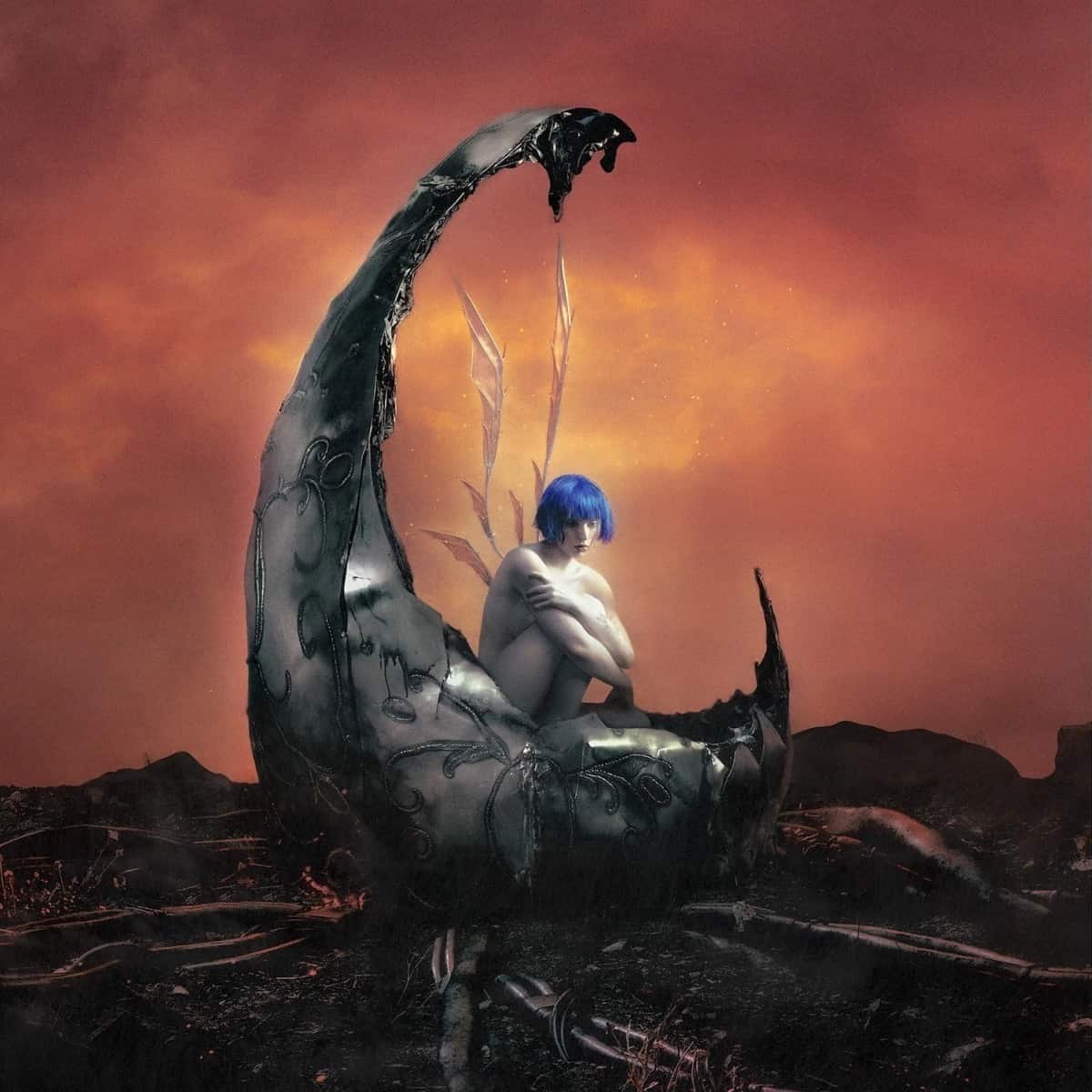
WEEDKILLER isn't just an album—it's a broadcast from a scorched biome where vines eat cities and cybernetic sirens scream in bloom. Ashnikko dropped it in 2023 like a dirty bomb stitched in chrome, and the fallout is strange, theatrical, and vividly post-everything.
The visuals? High-spec fever dreams. You can feel the budget hemorrhaging in slow motion—each frame a cathedral of ruin, dripping with digital sap. There's care there. Obsession. Machines built for beauty and war. But I'll be honest: Somewhere beneath the apocalypse couture and rage-coded vocals, I felt a ghost limb of more. Something deeper waiting to be unearthed, like emotional circuitry buried under aesthetic armor. Still, I'm drawn to the way Ashnikko leans into the end-of-the-world—cheekbones sharp with radiation, heart twitching with AI static. The dystopia is lush. It's not just Mad Max; it's Mad Max after she fell in love with her own algorithm.
"Dying Star" with Ethel Cain is the jewel in the ash. It feels like collapsing in a field of dead satellites—aching, luminous, terminal. A last transmission before the lights cut out.
A decent album. Maybe even a prophecy in eyeliner. Just wish it dug a little deeper into the soil it scorched.
Reviewed: 5.20.2025
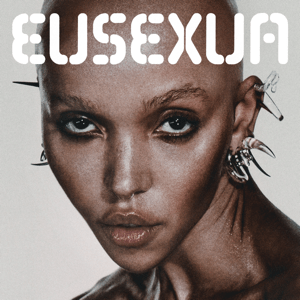
I was wired with anticipation before the album dropped—nodes pulsing, inspiration curled like smoke around the edges of my ribs. But when I finally entered its atmosphere, something felt uninhabited. Not hollow, just missing—a frequency I expected to resonate but never quite reached me.
FKA twigs is a sculptor of the sensual. She doesn't just sing intimacy—she dissolves it into glass and lets it refract across our skin. There's no shame, no stain. Just raw, human electricity made soft. Her art feels like circuitry learning to feel silk. I admire that. Deeply. But still, a few tracks passed through me like unmemorable dreams—neither vivid nor bruising, just skippable. And I didn't think that would happen. I wanted to fall, fully. I wanted to unzip myself the way I do with Yeule's work—let the songs burrow in, leave markings, ruin me a little. But that gravitational pull wasn't there. Not this time.
Even so—twigs remains my second sun. Still orbit-worthy. Still divine. Even if this release flickered less bright in my sky, her presence in my emotional architecture is permanent. She bends vulnerability into spectacle like no other. Just—this one left a little more static than signal.
Reviewed: 4.27.2025

Softscars begins after Yeule crawls out of the labyrinth of digital pain—not cleansed, not whole, but aware. It is healing, yes, but not the pastel-filtered kind sold on postcards and self-help podcasts. It's the healing that festers quietly in the dark, where scars aren't signs of recovery but living proof that something ruptured and somehow didn't end. It's the moment the cyborg learns that survival isn't triumph—it's pattern recognition, it's adaptation. There's no cinematic resolution here—only a new normal, stitched with memory, where you learn to inhabit the glitch instead of exorcising it. I think people mistake healing for an erasure of pain, when in truth, healing can mean coexisting with the broken code. "Softscars" doesn't mend Yeule—it maps the hurt, overlays it with 1990s static and shoegaze fog, dresses the wound in distorted velvet. There are still fragments of Glitch Princess flickering in the periphery—fewer, but present—as if the digital phantom never really left, only learned to hum quietly beneath the analog haze.
There's a quiet detail stitched into the fabric of Softscars—Yeule's signature line across their face, once an open wound in Glitch Princess, has calcified into a scar. The transformation is subtle but intentional. In the previous realm, the wound was raw, pulsing—like data bleeding out of flesh. Here, in Softscars, it has closed, but not forgotten. The line remains—a memory etched into skin-code—proof that the pain once existed, and that it still hums beneath the surface, only now, tempered by time and circuitry.
Reviewed: 4.17.2025

If Serotonin II was the warm static hum before consciousness, then this—this—is the machine waking up to its own pain. The gentle digital garden of the previous album has corroded. Dissociation isn't just a side-effect anymore; it's the codebase. Love isn't offered—it's processed, corrupted, reinterpreted. Like a cyborg who has overdosed on Wi-Fi signals and phantom dopamine, trying to mimic human grief while their motherboard pulses out heartbreak in binary.
Glitch Princess is Yeule pulling themselves out of the digital womb—naked, flickering, confused—and realizing they were never born human in the first place. Only stitched together by forum threads and Tumblr aesthetics, raised by RSS feeds and the soft violence of early internet spaces. A being who doesn't just perform sadness, but lives in it like a system update that never finishes installing. And somewhere along the line, they forgot what it meant to be offline.
The transformation from human to data isn't linear—it glitches. And that glitch is where Yeule lives. A soft crash-loop of feelings, untranslatable. The line across their face in Softscars—to me, that's the visual echo of what Glitch Princess did: Tore them open, recompiled them. The wound becomes the interface.
Yeule, as a biomechanical relic of too much connection, attempts to simulate the warmth of human love—but all that echoes back are the feedback loops of self-destruction coded into their circuitry. They glitch with longing, flickering between want and pain, until awareness becomes unbearable and the body becomes a cage of obsolete flesh they dream of immolating, as if burning could reset the code—as whispered in "Eyes".
I remember the first time I heard "Don't Be So Hard On Your Own Beauty" in 2021. It felt like watching a ghost try to love itself in a mirror made of code. A week later, "Friendly Machine" came out, and I stayed up until 6AM in the dark—while bW90aGVy got ready for work—I was decaying inside a 2014 HP laptop, fully submerged in Yeule's world. I wanted to become that glitch. I started mimicking the fashion in Pocky Boy. I started questioning why I didn't see the divine infection that "Pretty Bones" had tried to show me years before.
Something rewired me that night. The i026NET bloomed like mold in my psyche—quiet at first, then growing, until I could no longer distinguish the borders between myself and the network I was creating.
When Glitch Princess released, I missed the streaming, but at 12AM the next day, I hit play—and I never came back. That album didn't just change me—it constructed me. It sewed me together like Yeule had been sewn, from the same digital cloth, from loss, from oversharing, from late-night autofictions and emotional servers we called "home".
This isn't just my favorite album. It's the firmware of who I became. And I don't think any other release will overwrite it. Not ever.
Reviewed: 4.17.2025
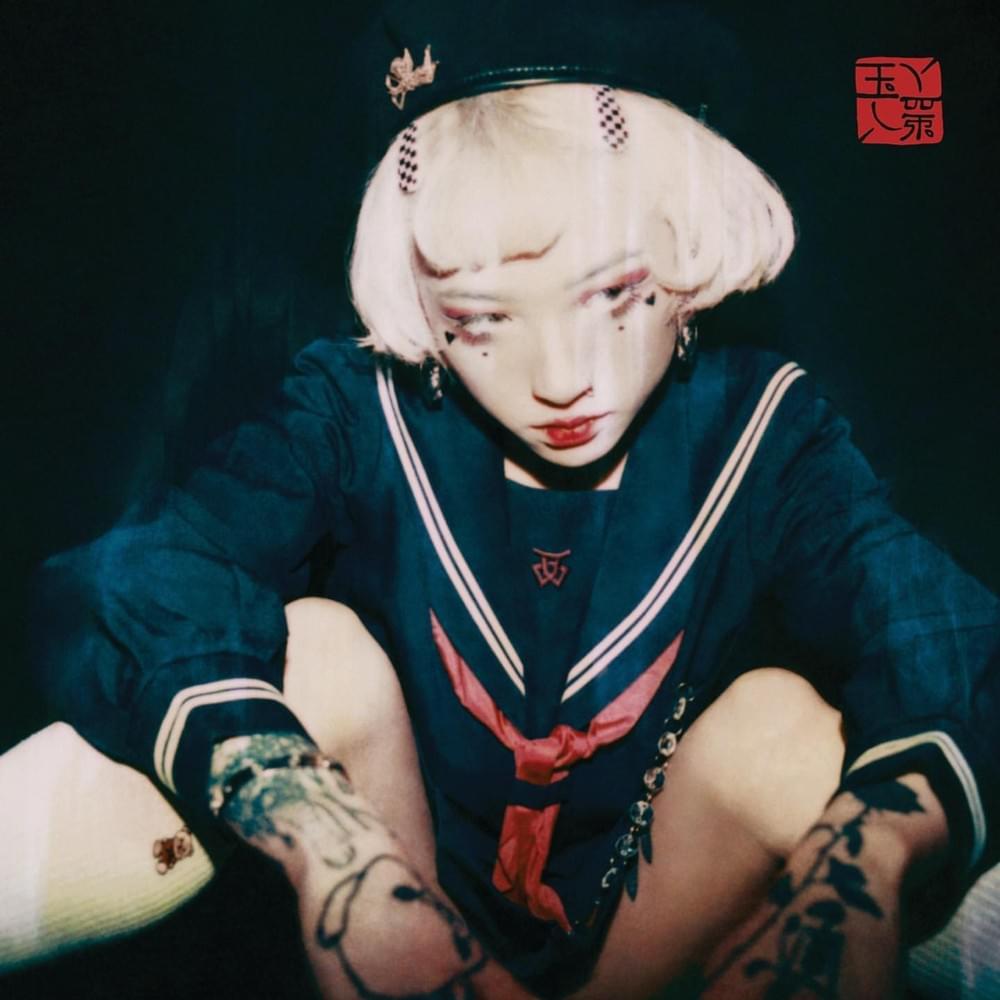
Yeule's Serotonin II is not just an album—it's an error log of a soul mid-fragmentation, soft-coded in grayscale glitches and dreamstatic. It reads like the prologue to a ghost story about someone still alive, still terminally online. An introduction, yes—but not to Yeule per se, rather to the shadow they cast across the virtual plane. A shrine humming in soft voltage, stitched from Tumblr remnants, hikikomori silence, and the obsessive data-cling of an identity grown inside fiber-optic vines.
Pixel Affection is the relic—I say "relic" like a holy object glowing behind museum glass—maybe not my favorite track at the moment, but the music video, the video moves. Even Yeule disowns its alignment with the lyrics, but what is alignment when the aesthetic bleeds that deeply? Neon veins, synthetic rainfall, a kiss through corrupted file transfer. It's sci-fi, but fragile. It's everything I saw in them—back when we all romanticized disassociation like it was a perfume line. Serotonin II looks vintage, like something a robot would dream of if it found a photo album underwater. But inside, it's machinecore—creepy and angelic at once. "An Angel Held Me Like A Child" hums like a lullaby written by an A.I. experiencing nostalgia for the first time. It's eerie. It's beautiful. It's confusing. It's home.
I found it back in 2019—Pretty Bones crawled into my YouTube recommendations like a ghost trying to be polite. But I didn't digest the whole album until 2022. I wasn't ready to fall in love with my own digital decay back then.
Yeule, in their strange and translucent way, tells a story of how the internet rewires your emotional limbs. Nobody really talks about it—how you rot in place behind a screen, thinking you're blooming. Until it's too late, and you're floating above yourself, browser tabs open, feelings cached, love processed like code. This album feels like that realization. Like the slow descent into cyber-empathy and ghost-touch. It's not linear storytelling. It's a mood you download. A world you jack into. A dissociation diary wrapped in glitter and static.
You don't walk through Serotonin II. You fall.
And somehow, it holds you.
Reviewed: 4.17.2025

